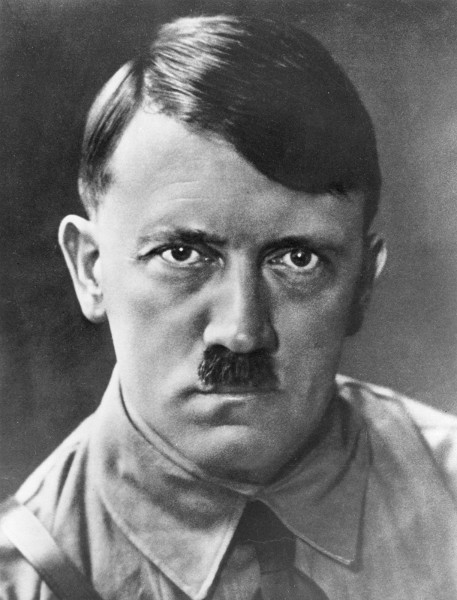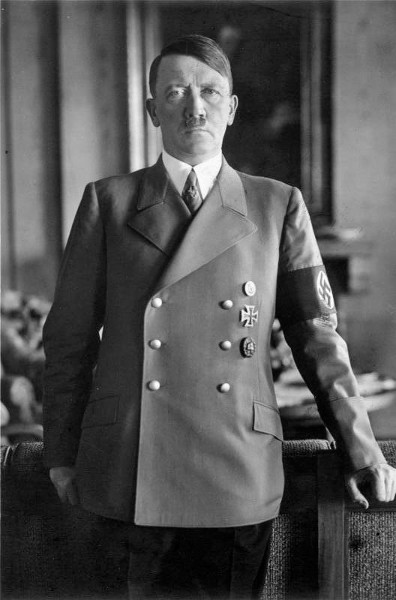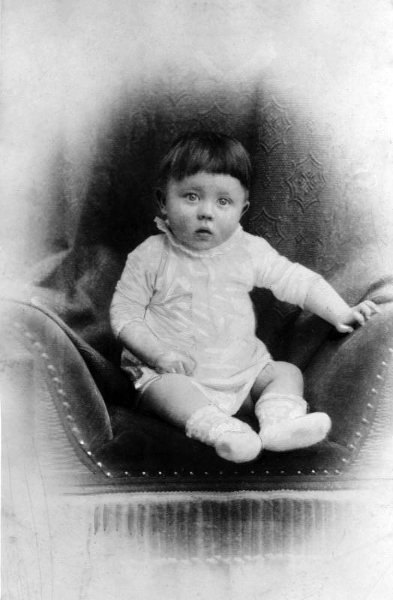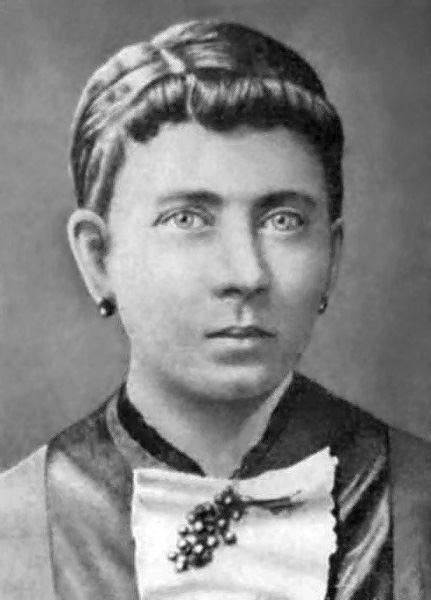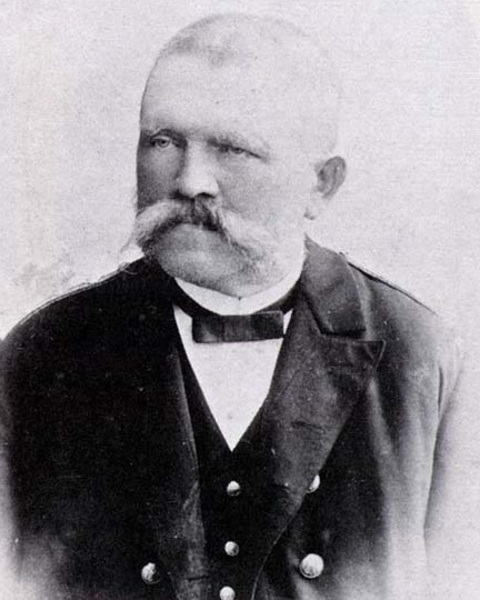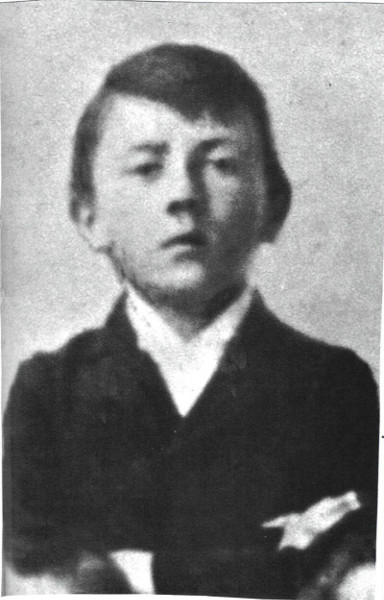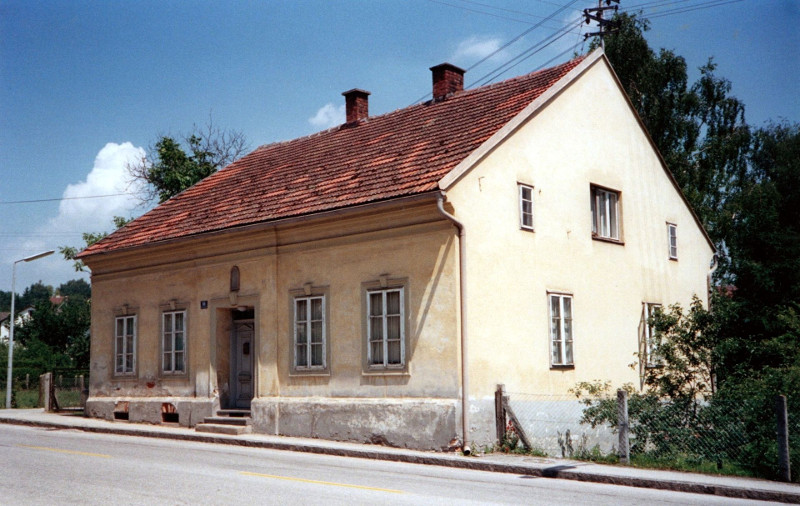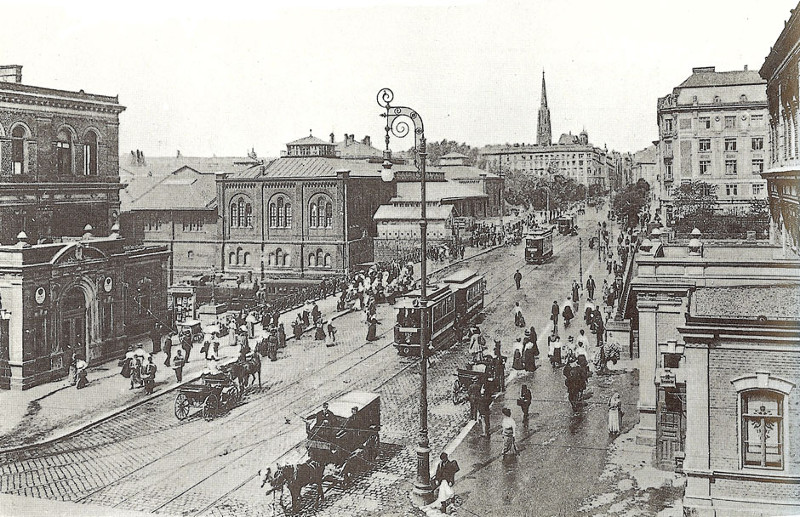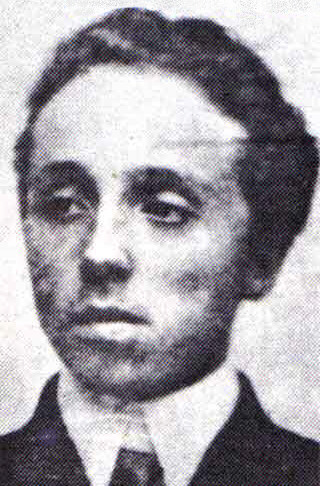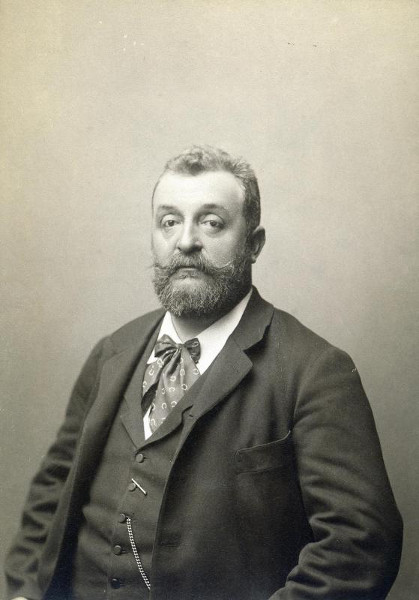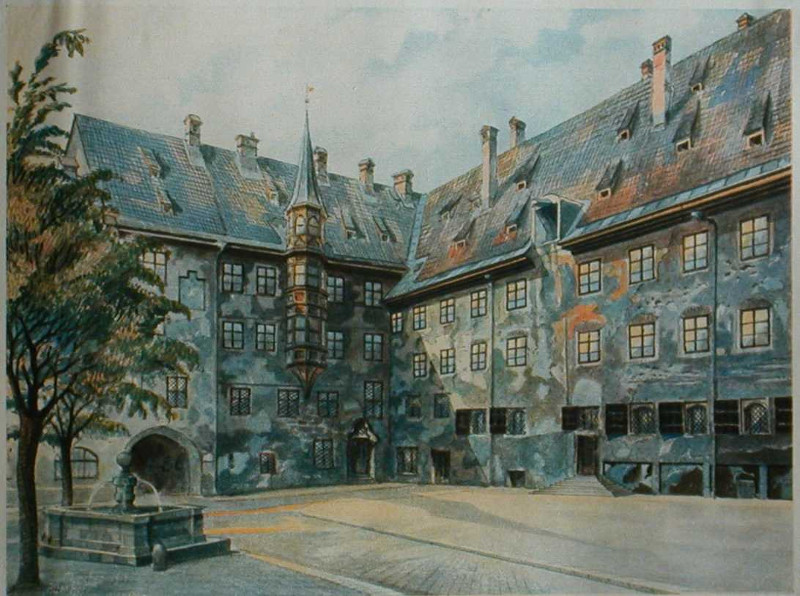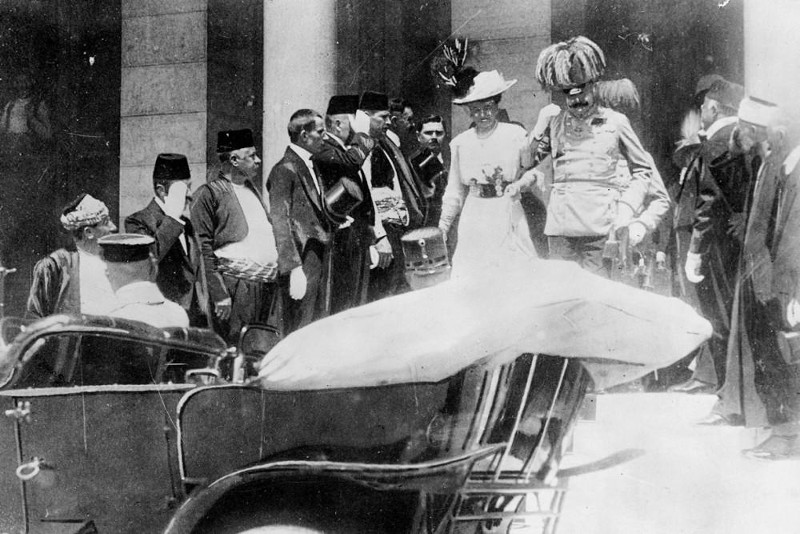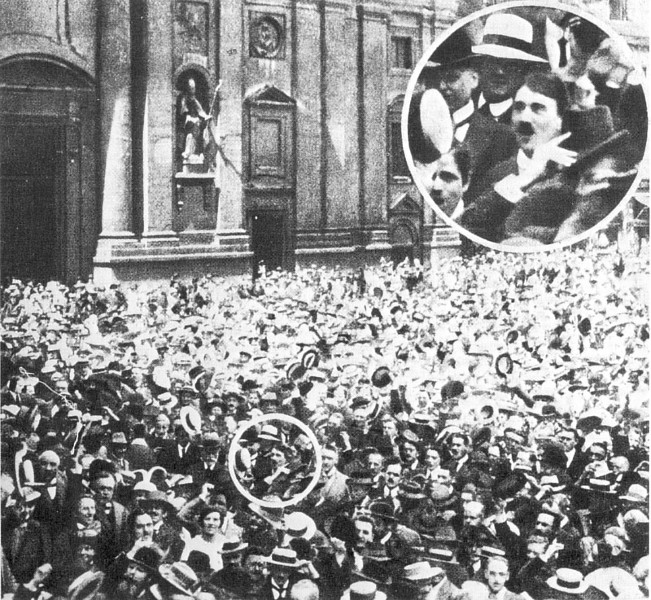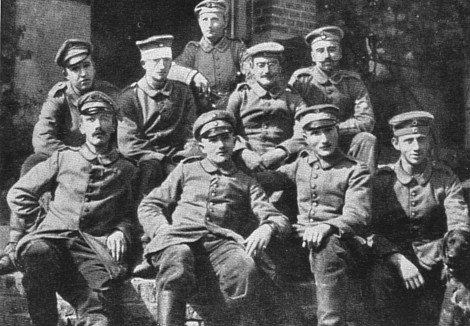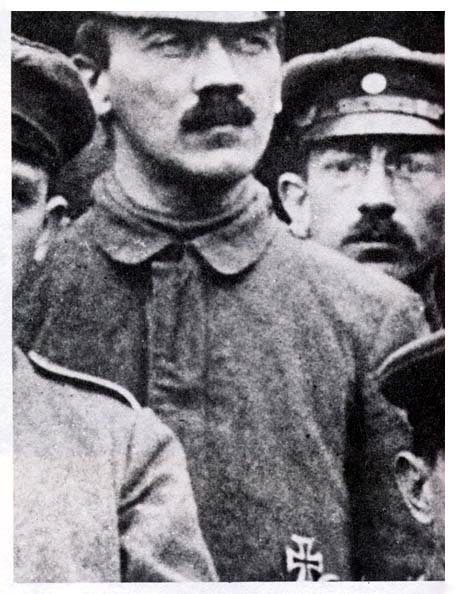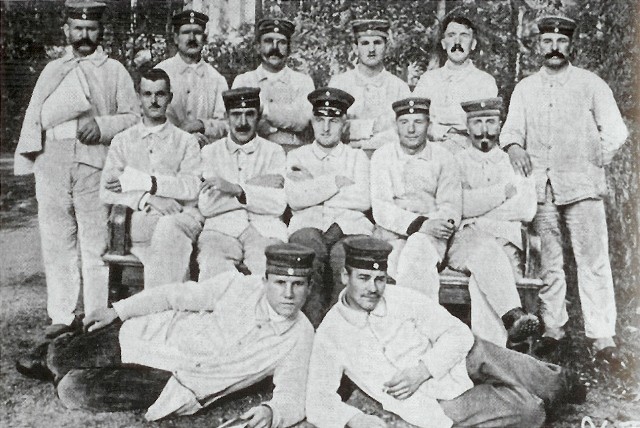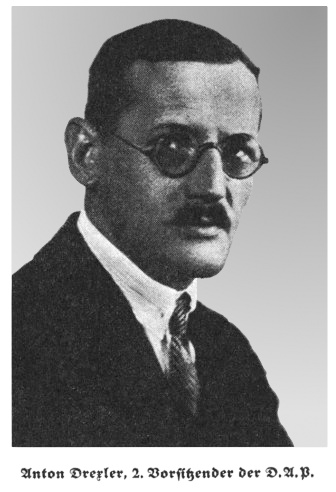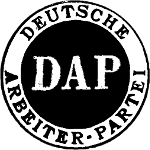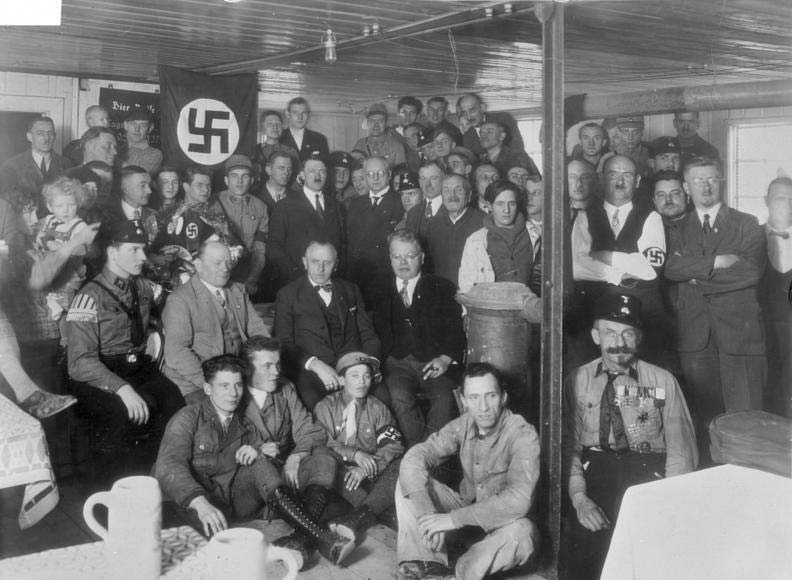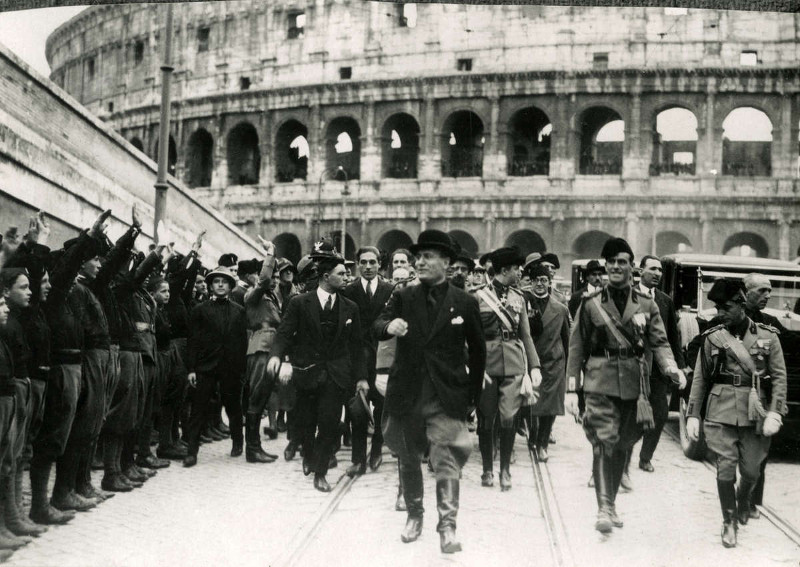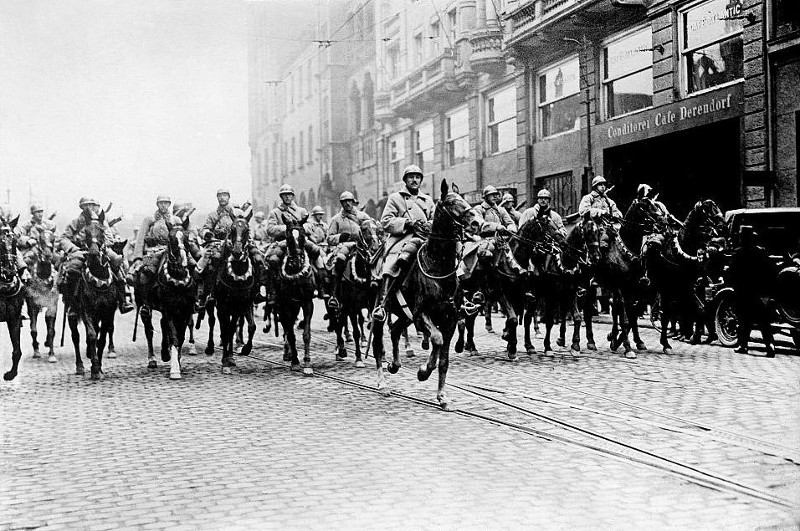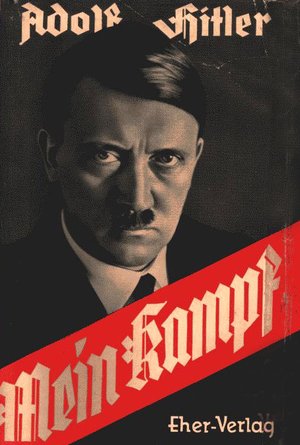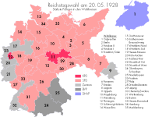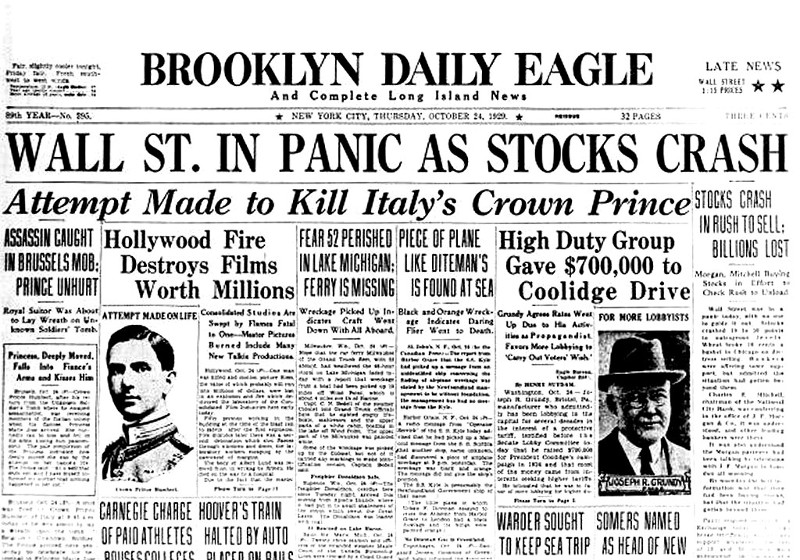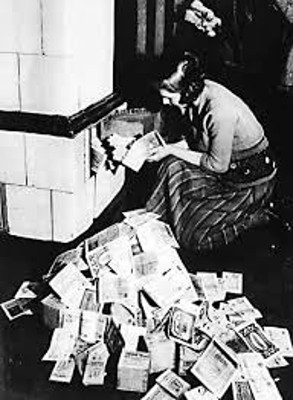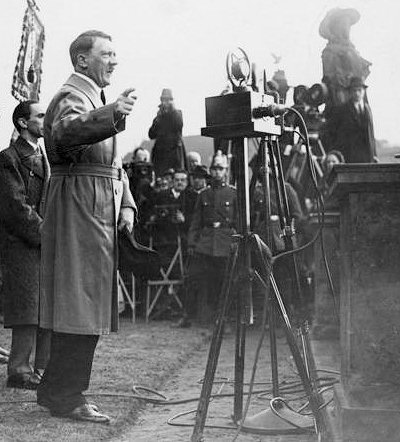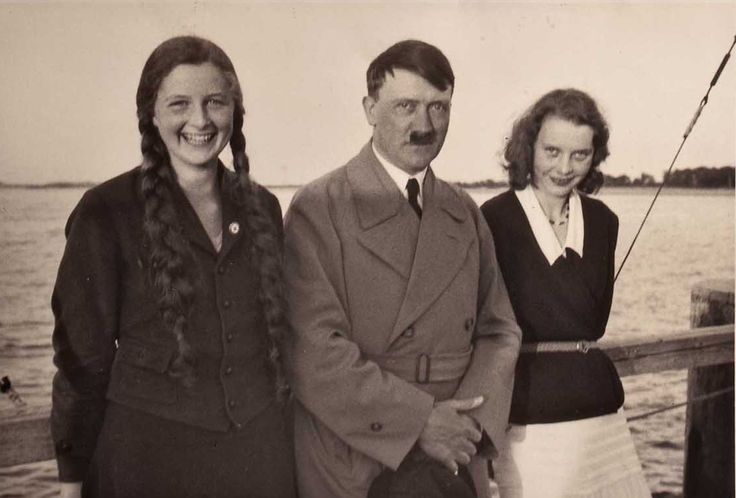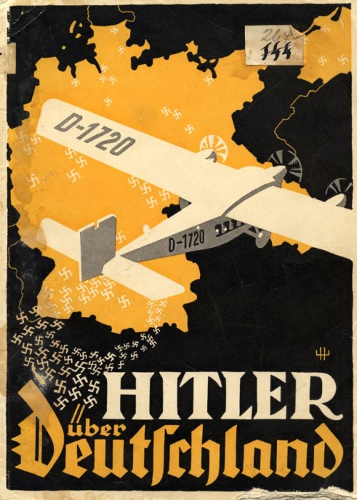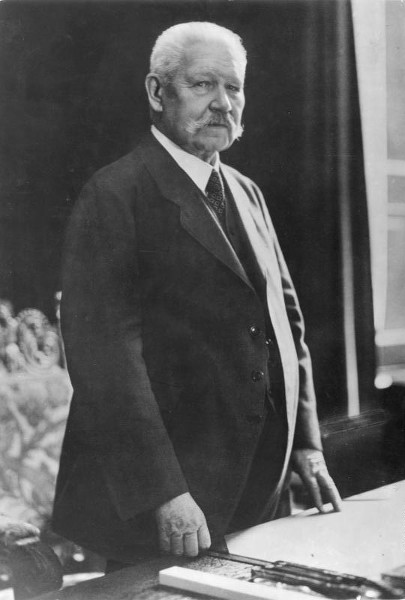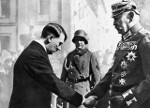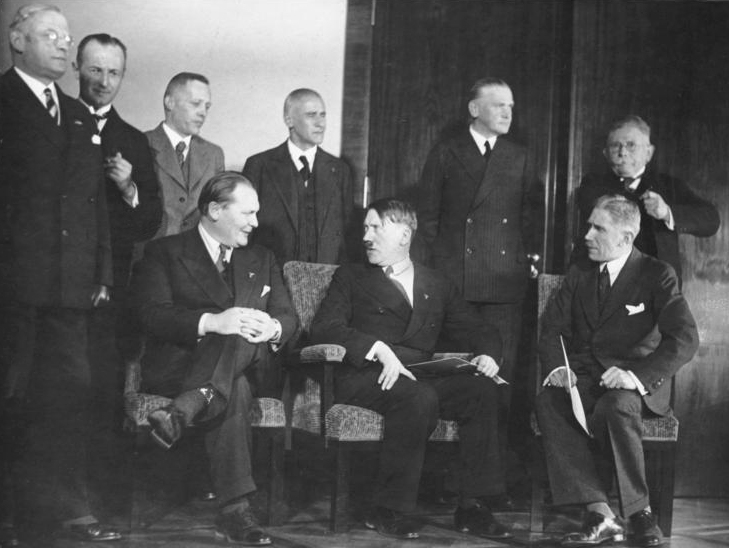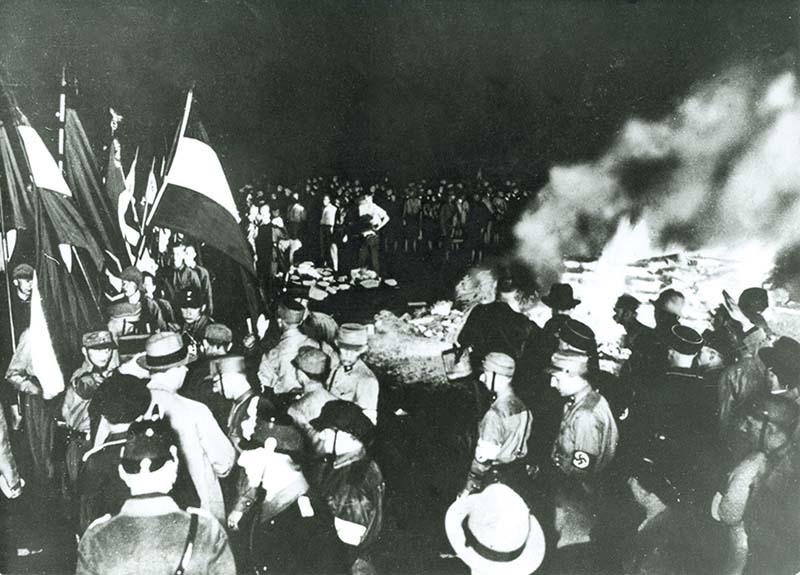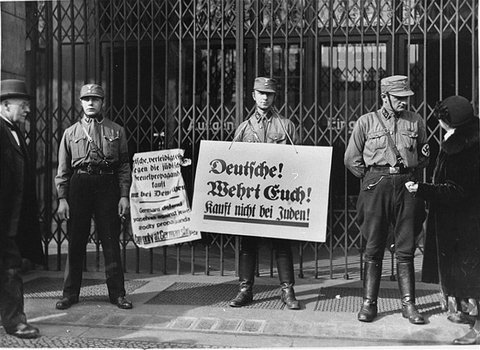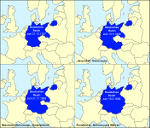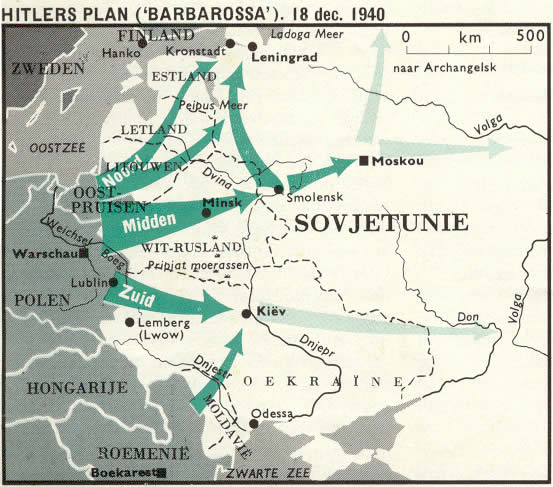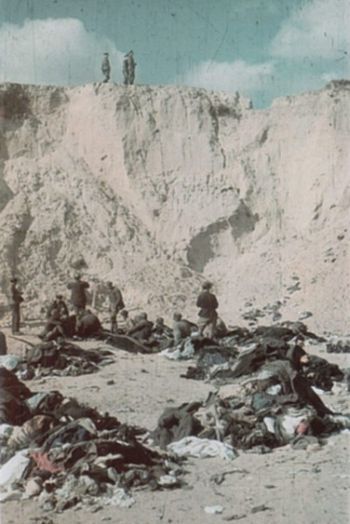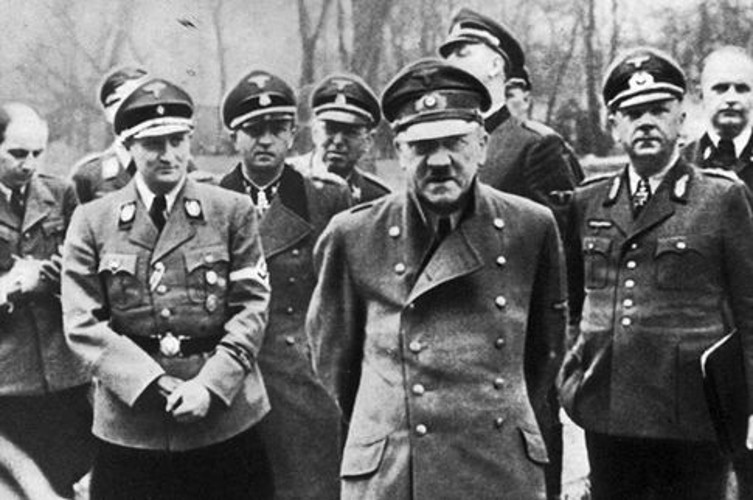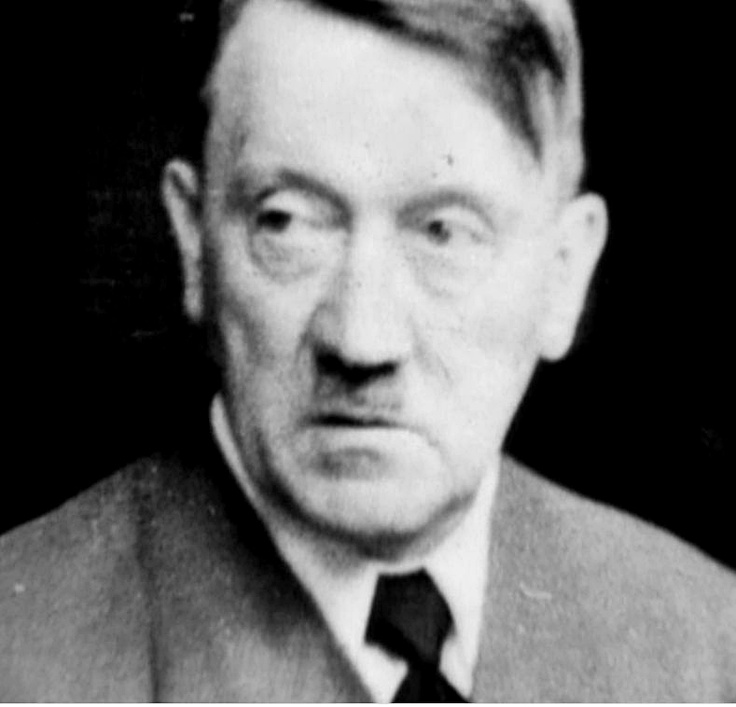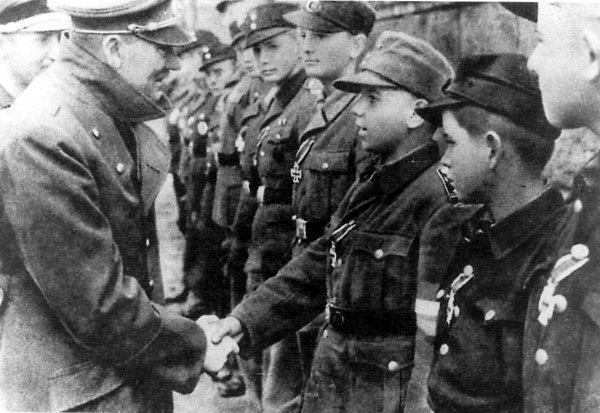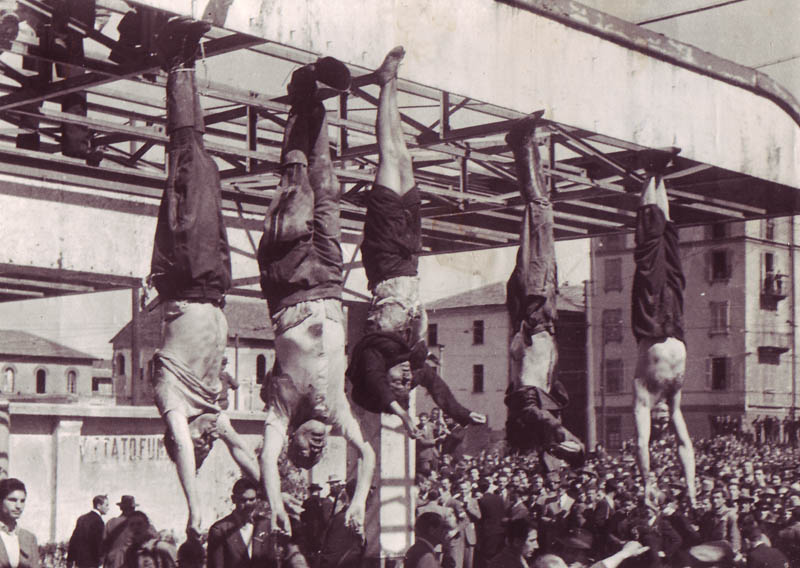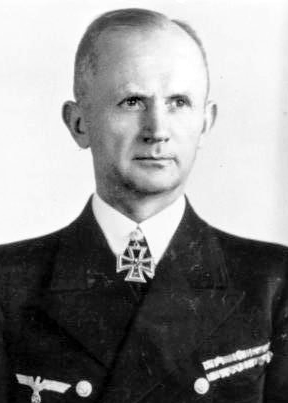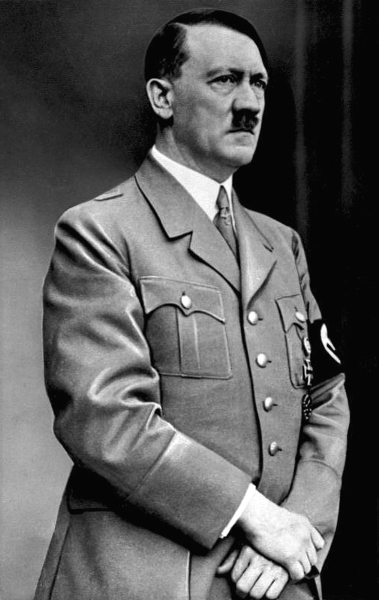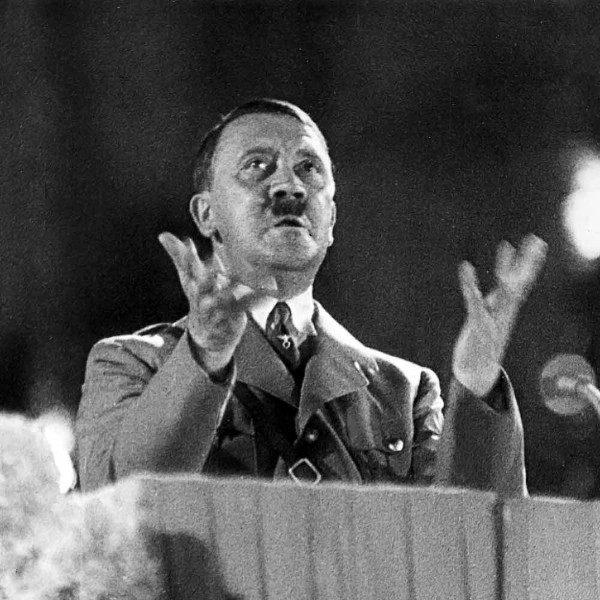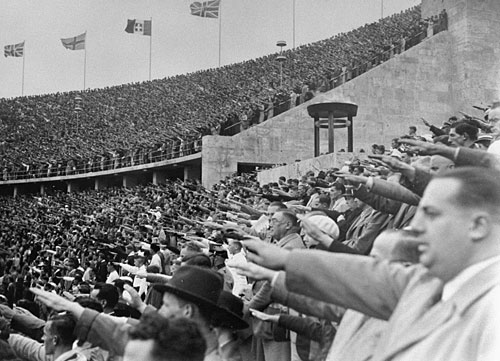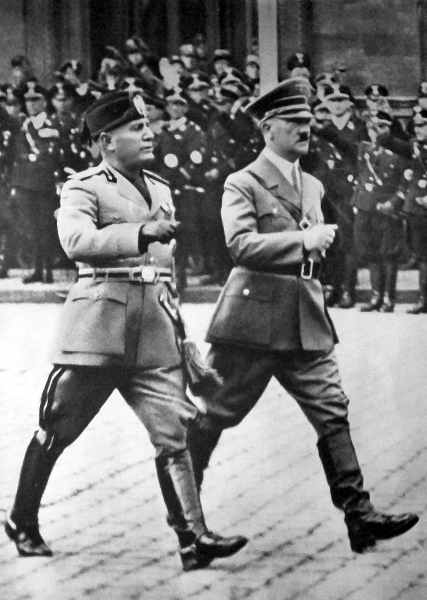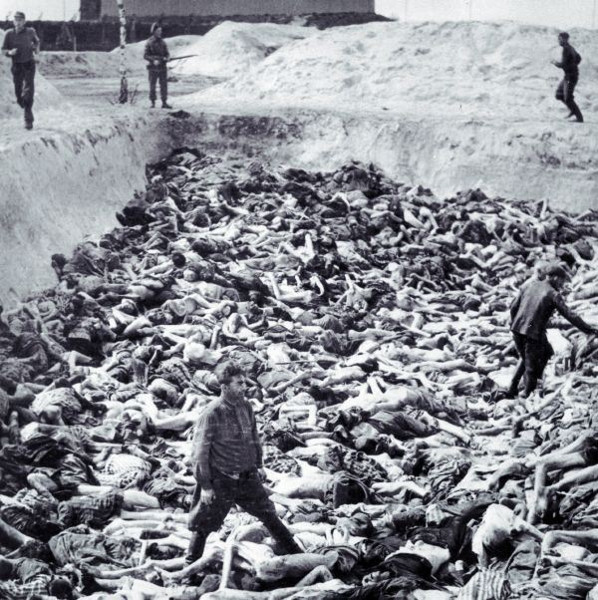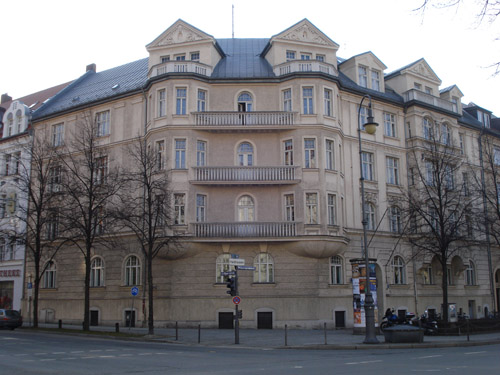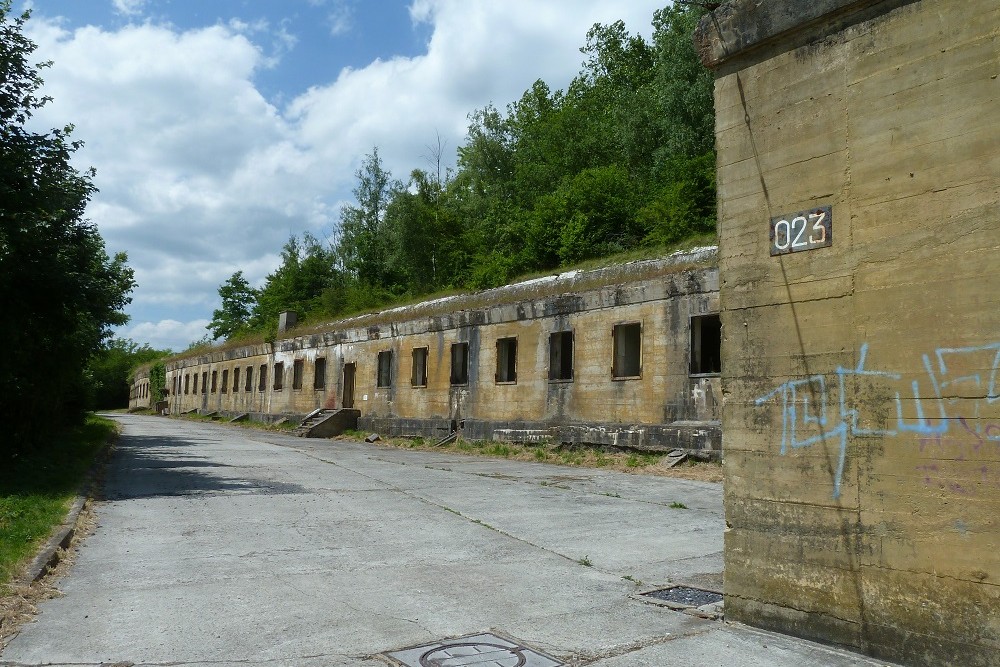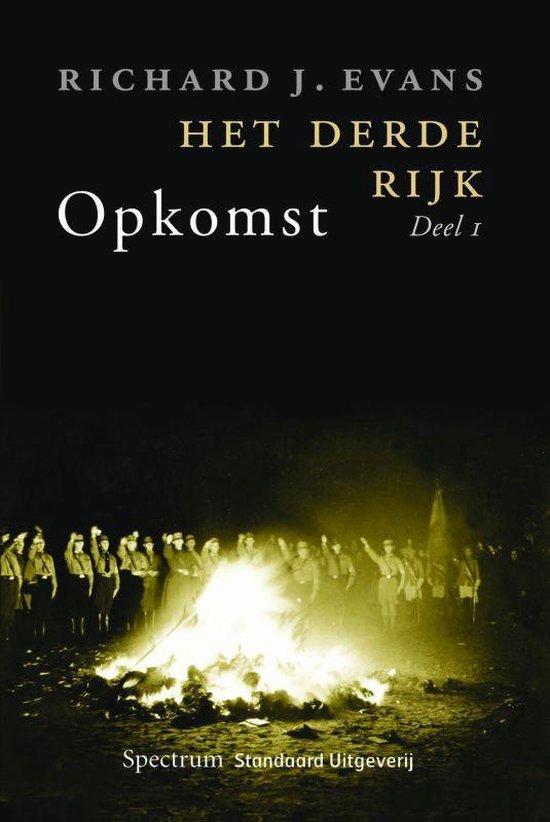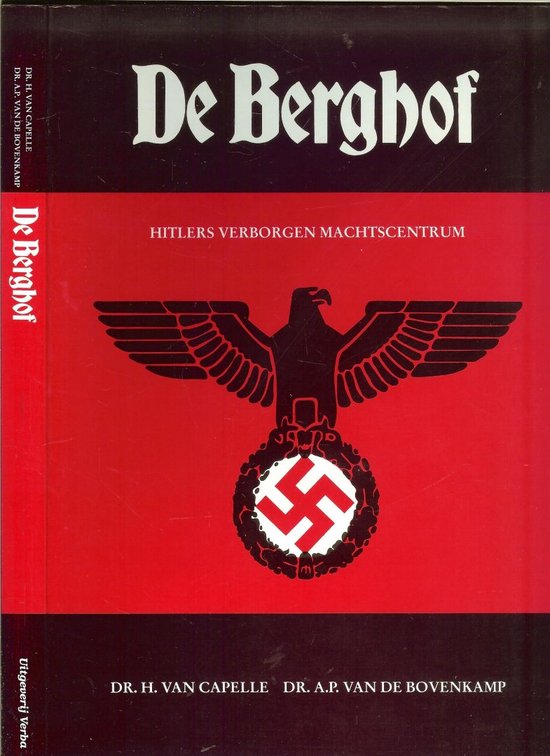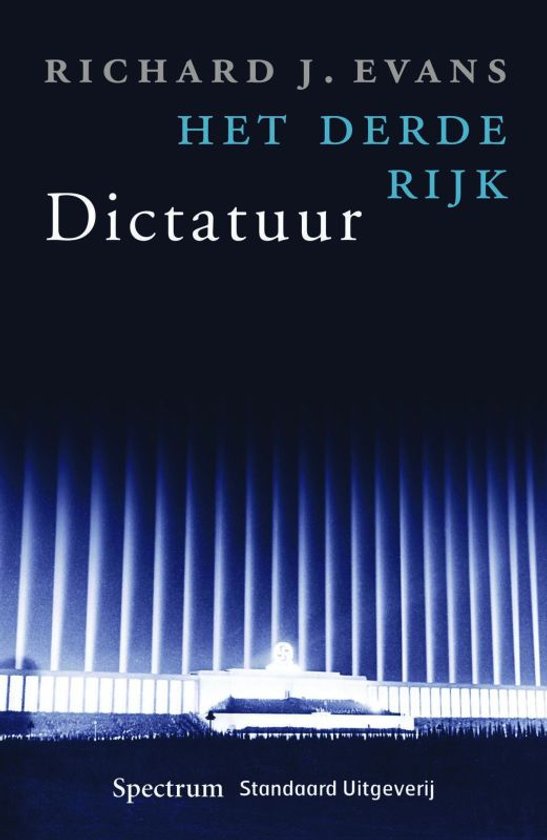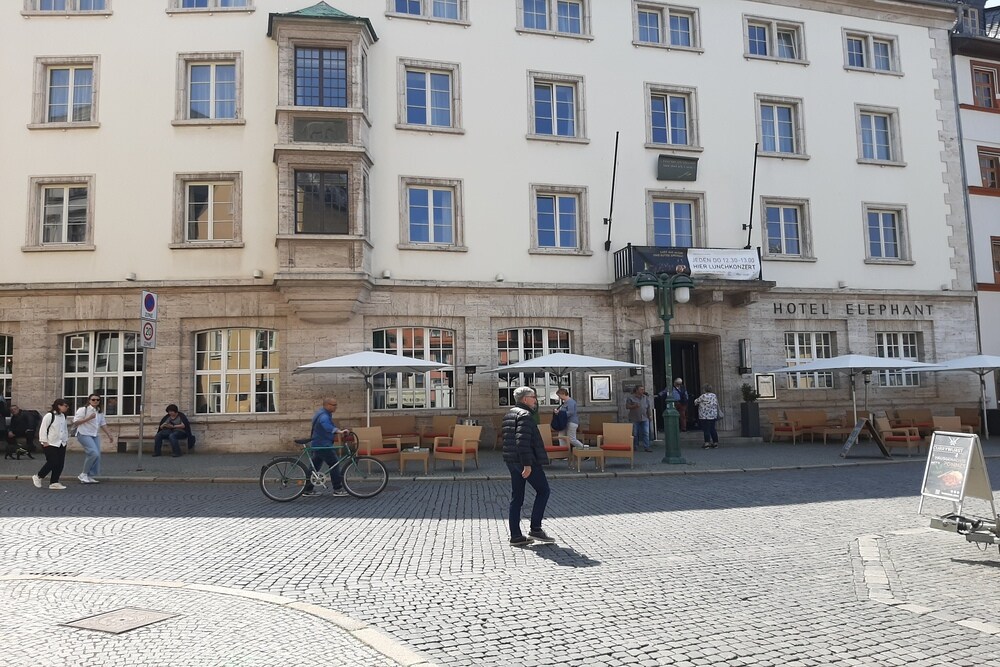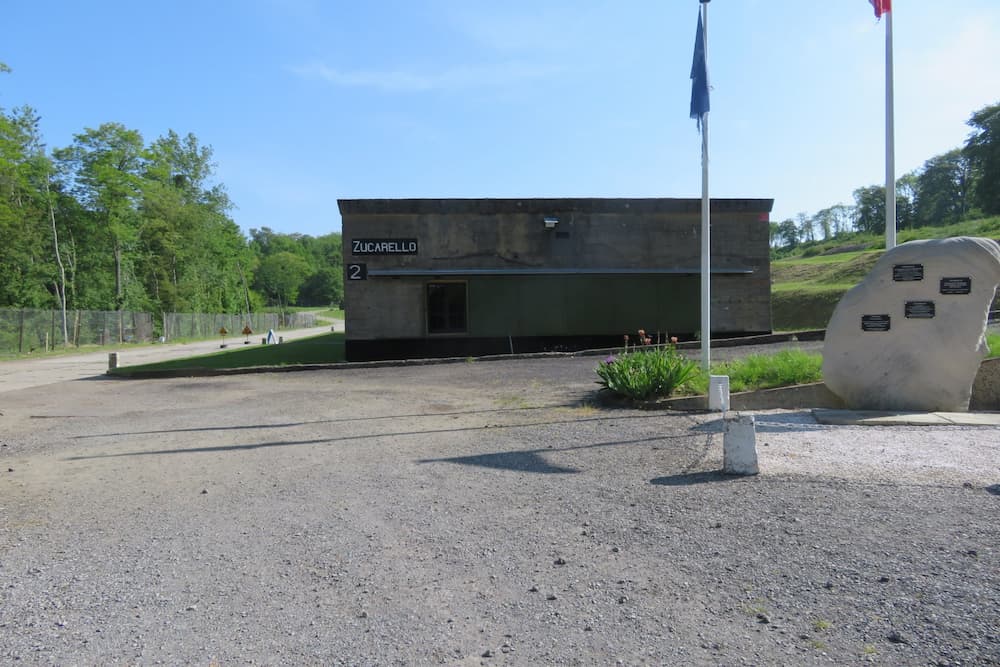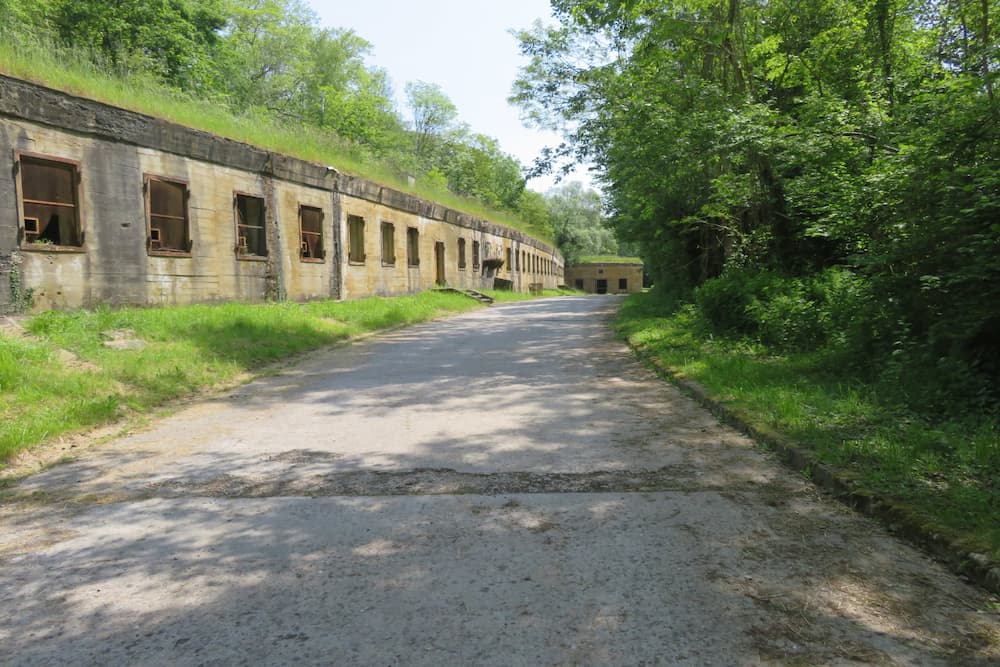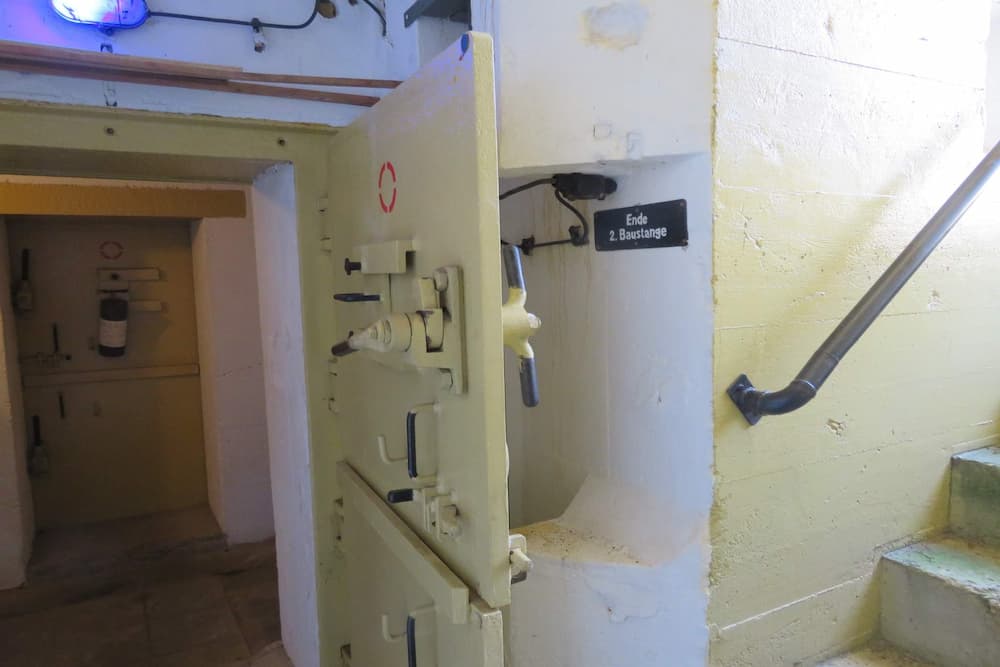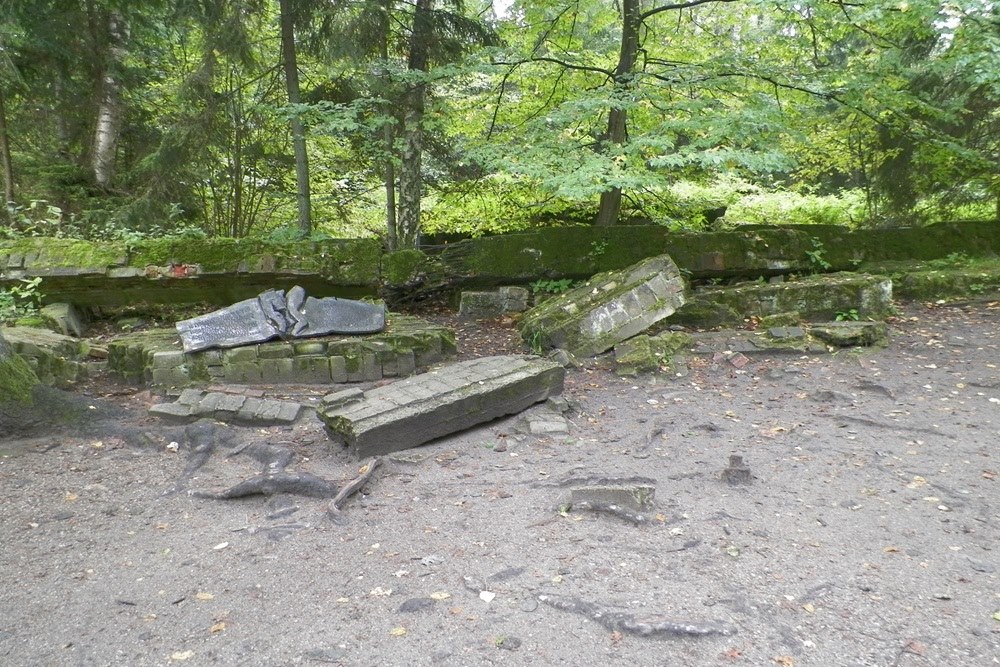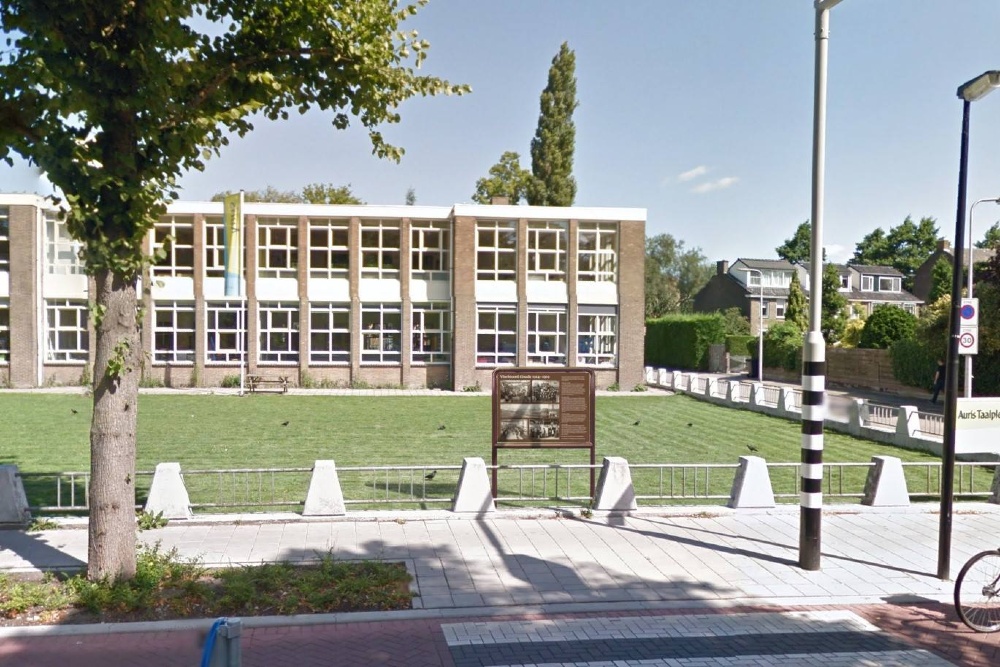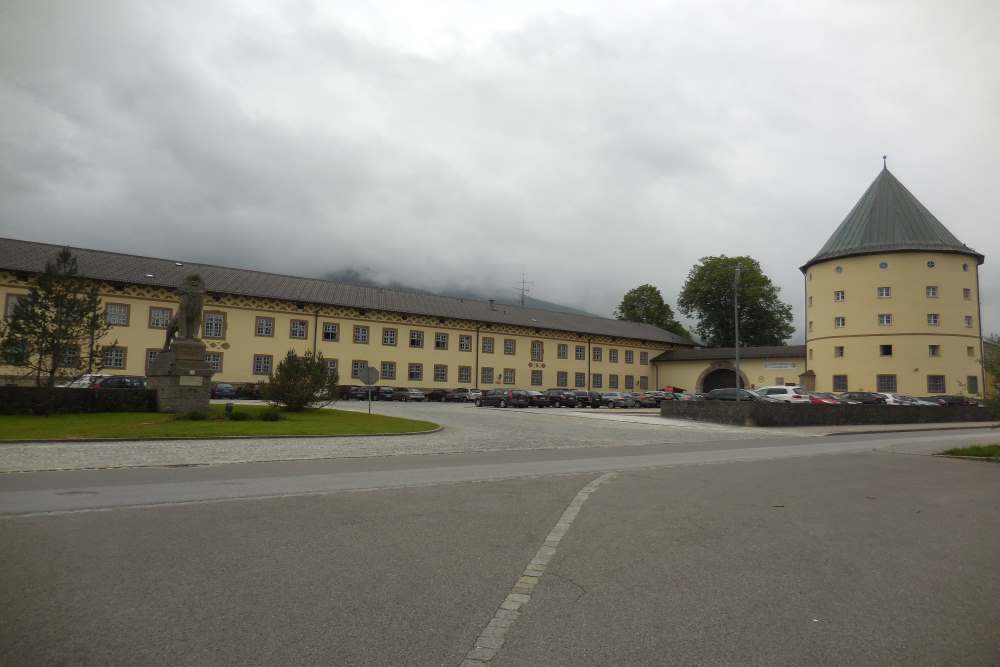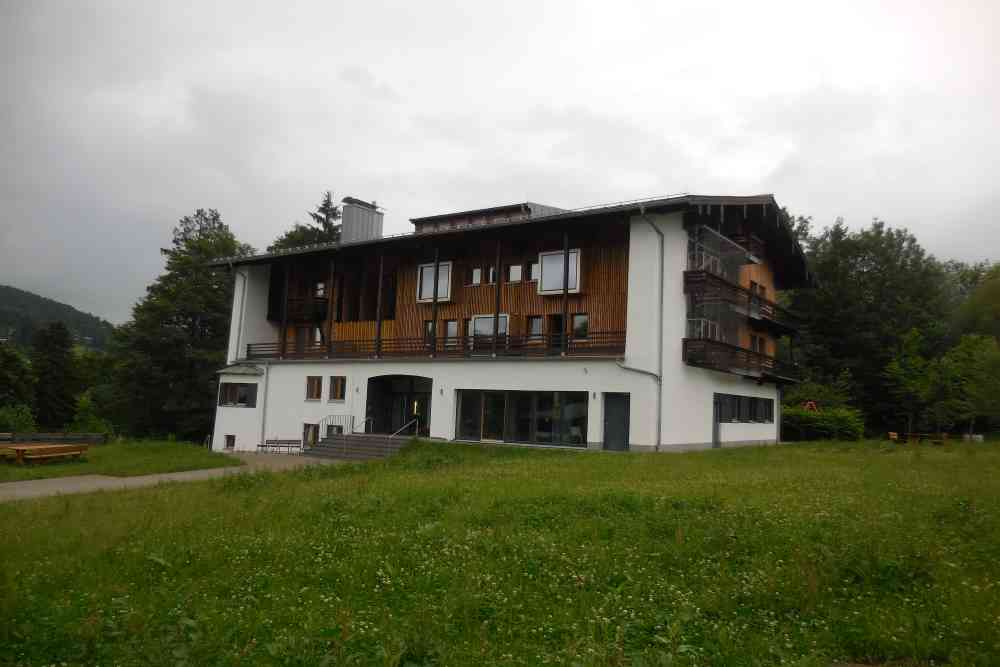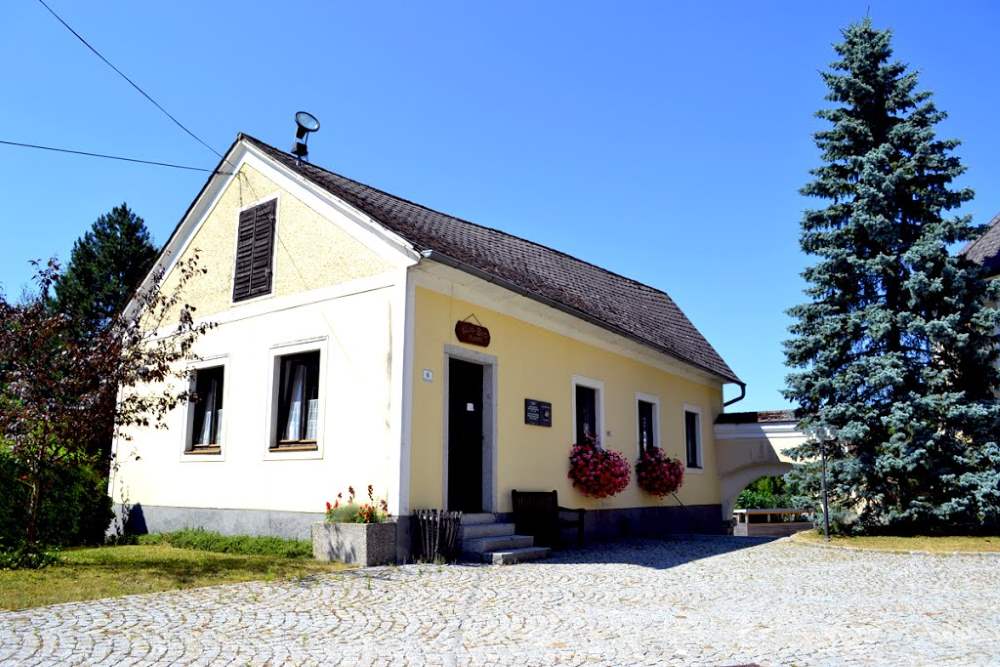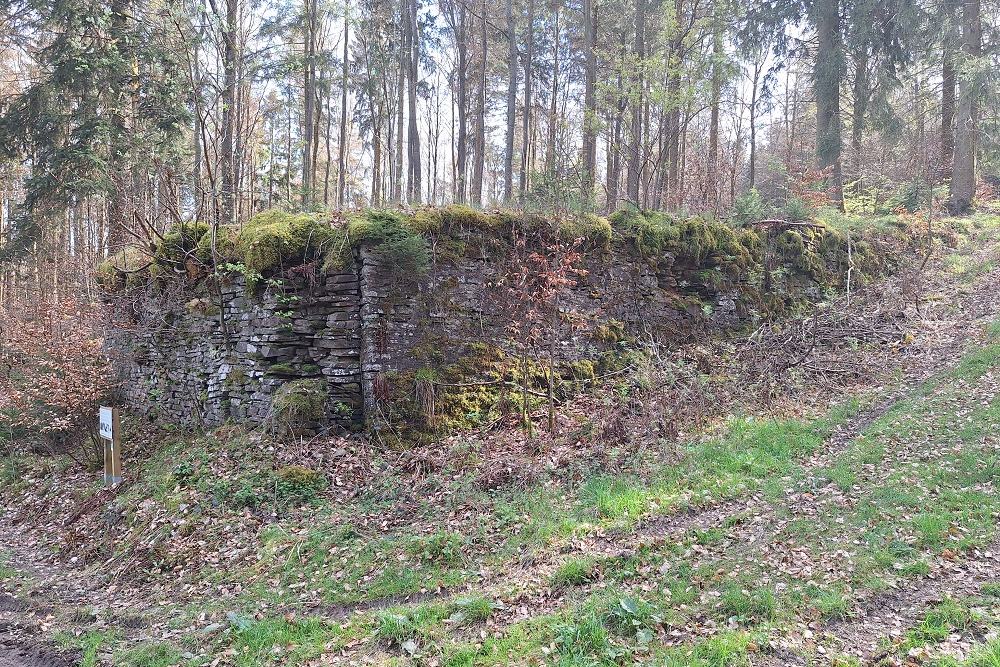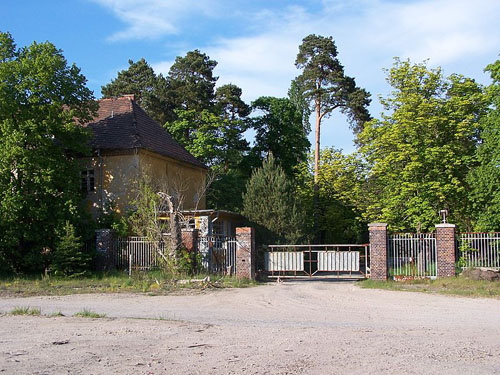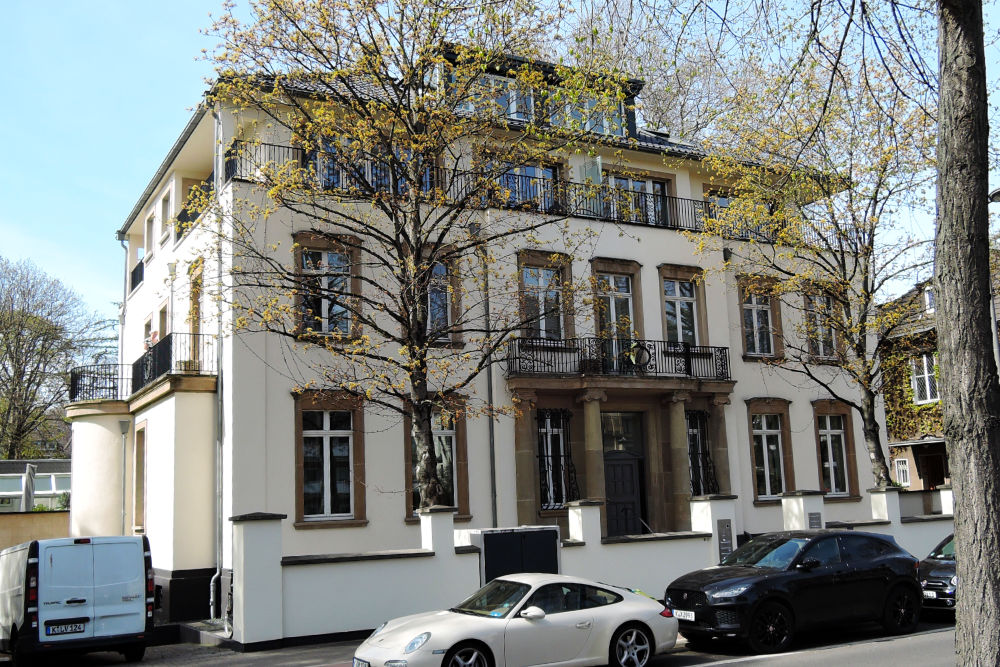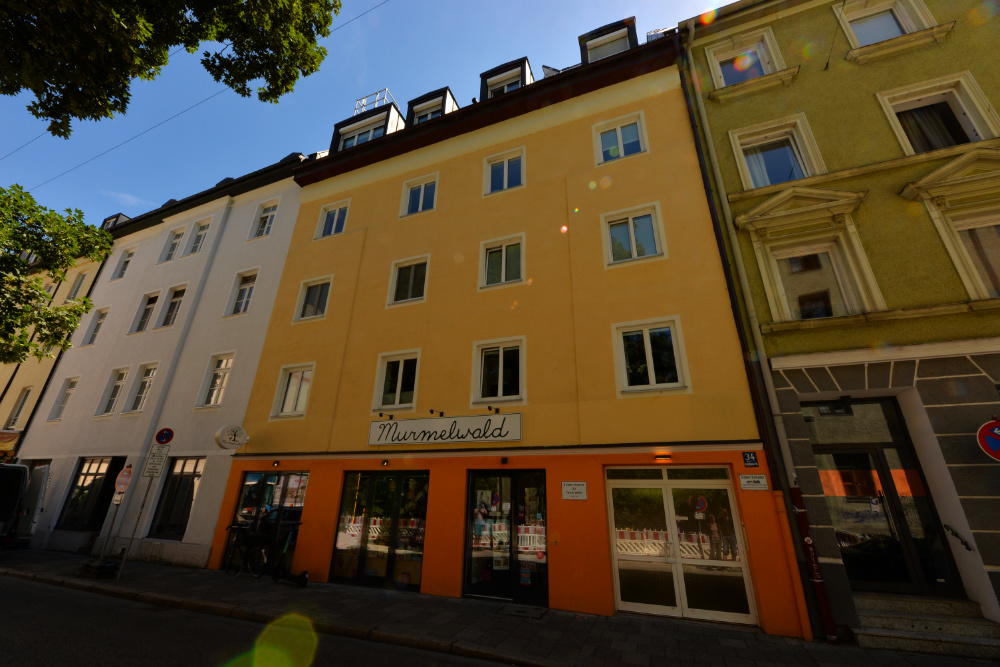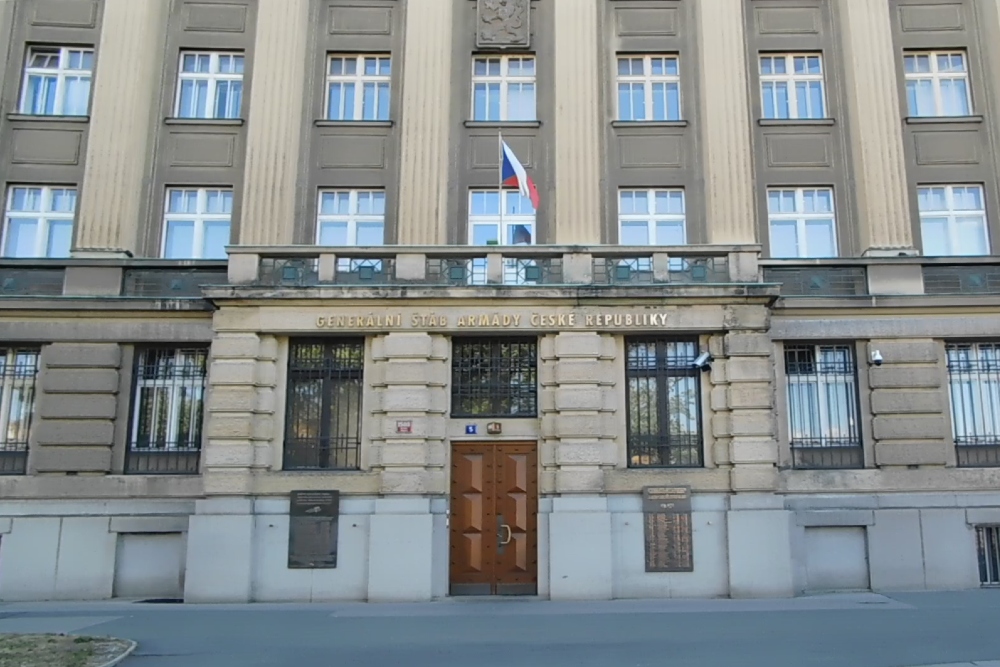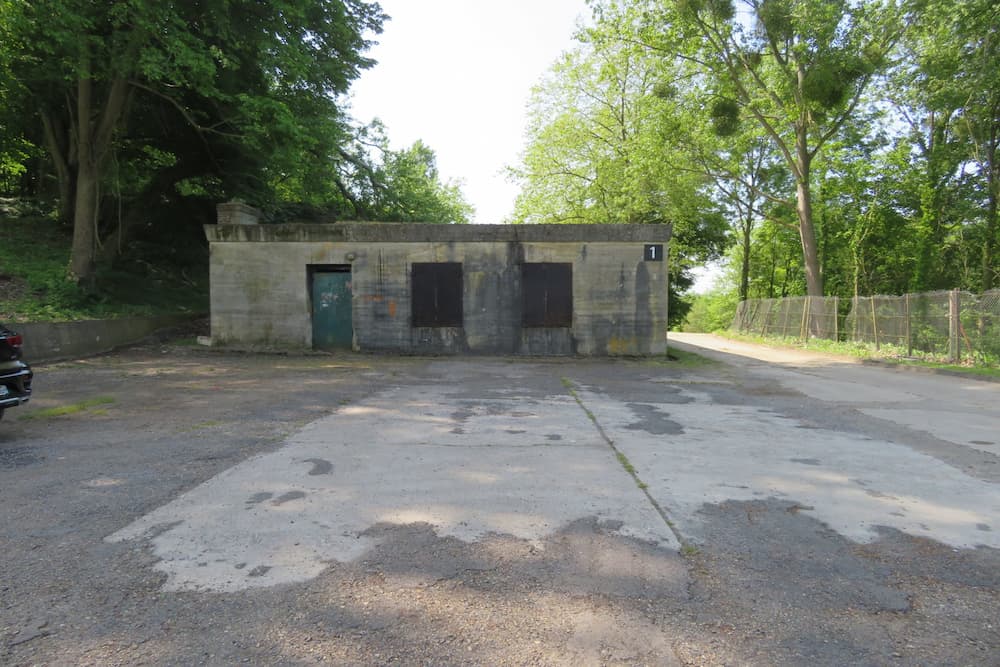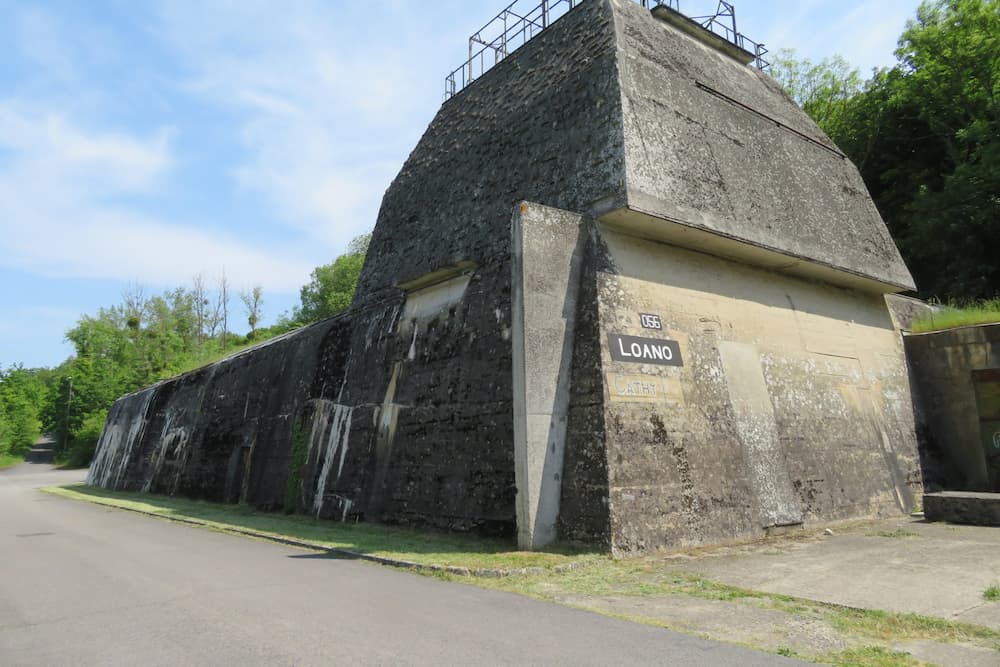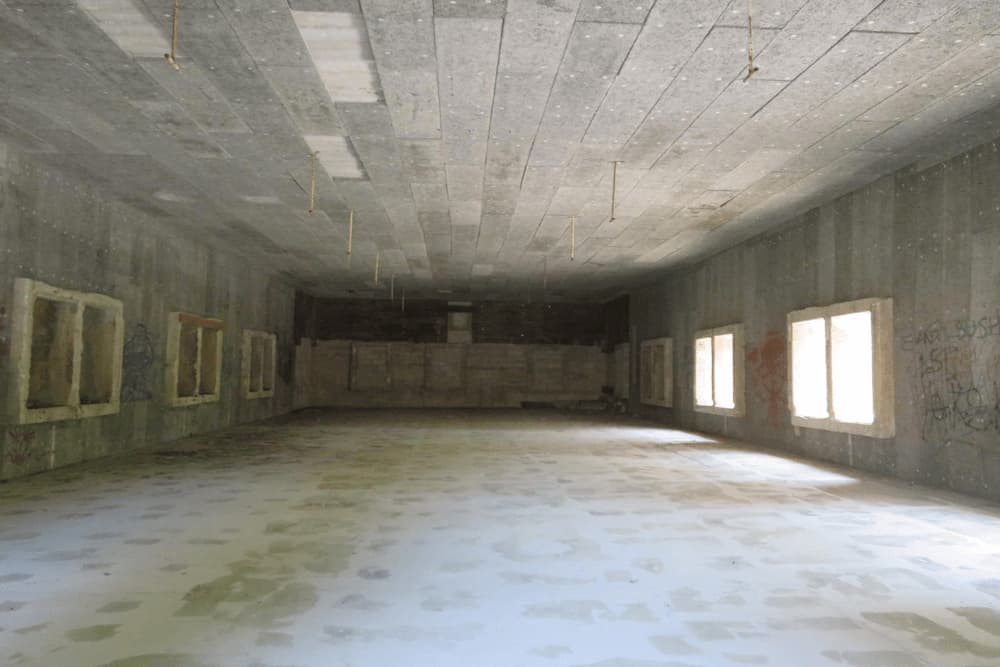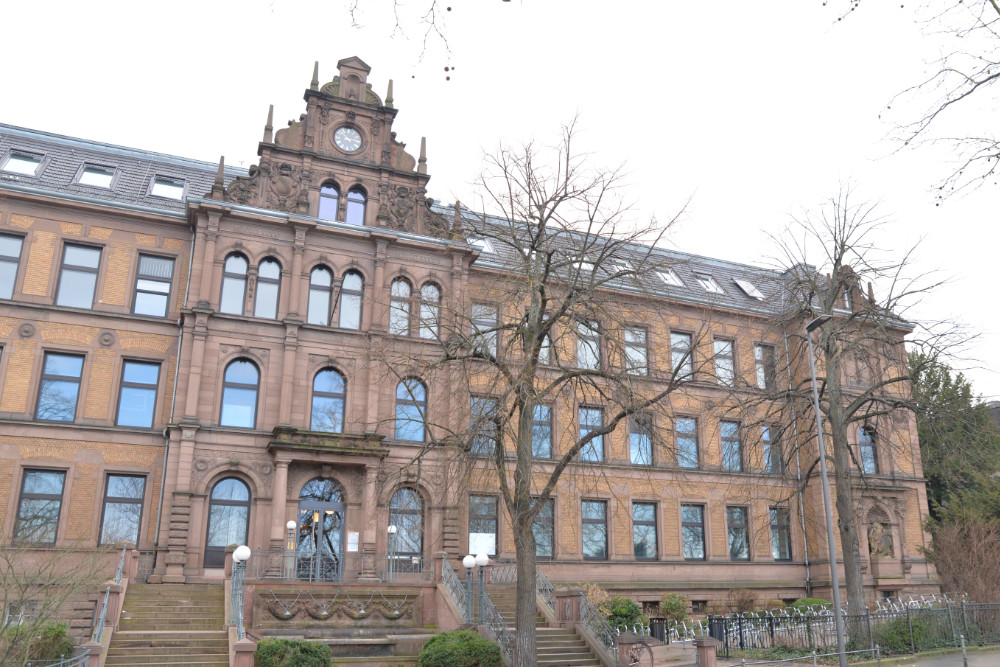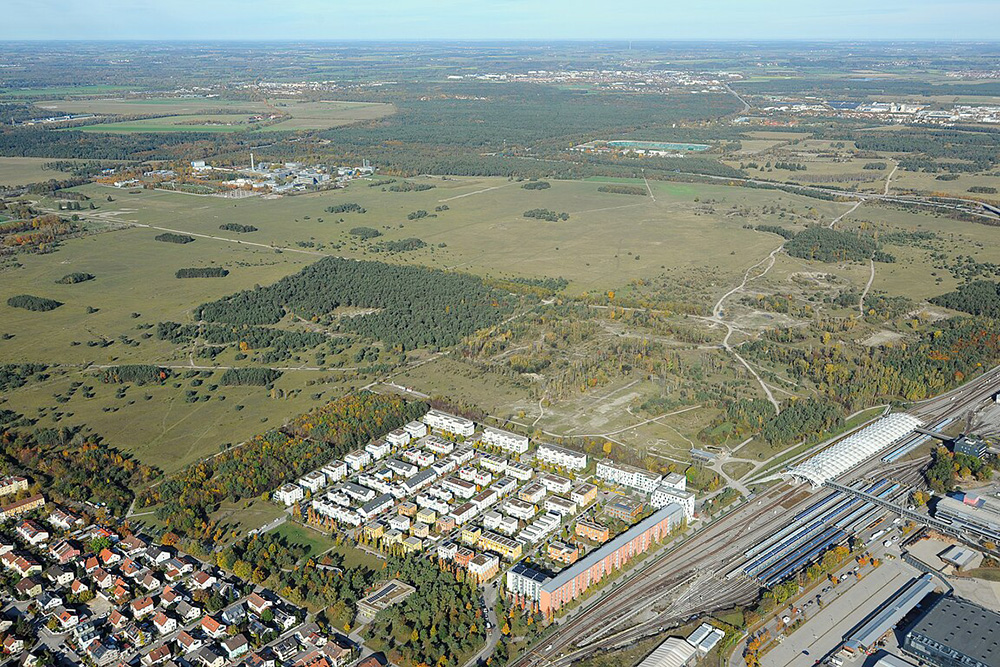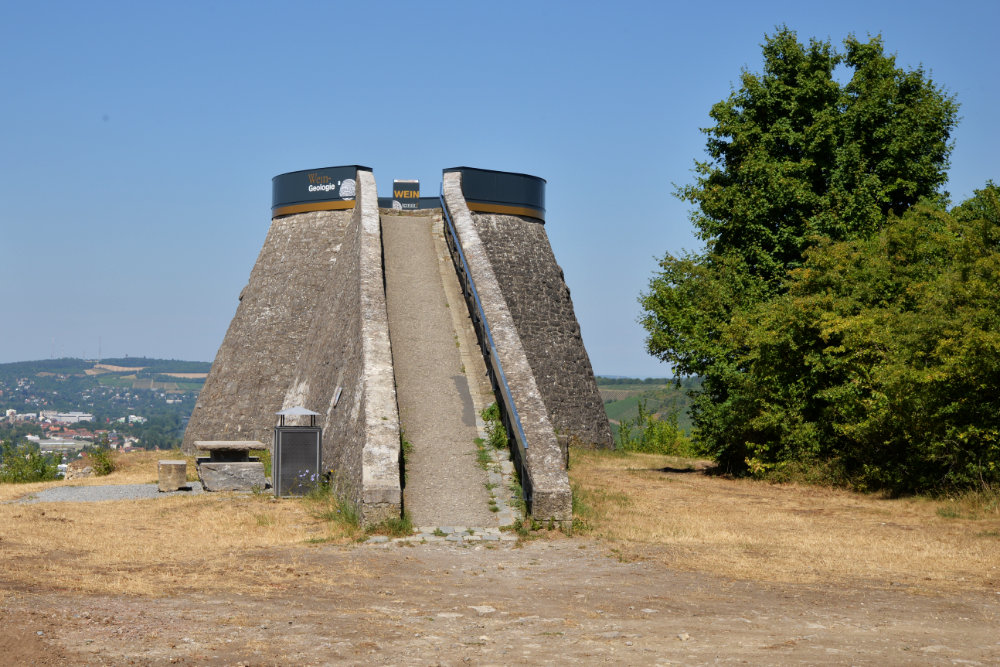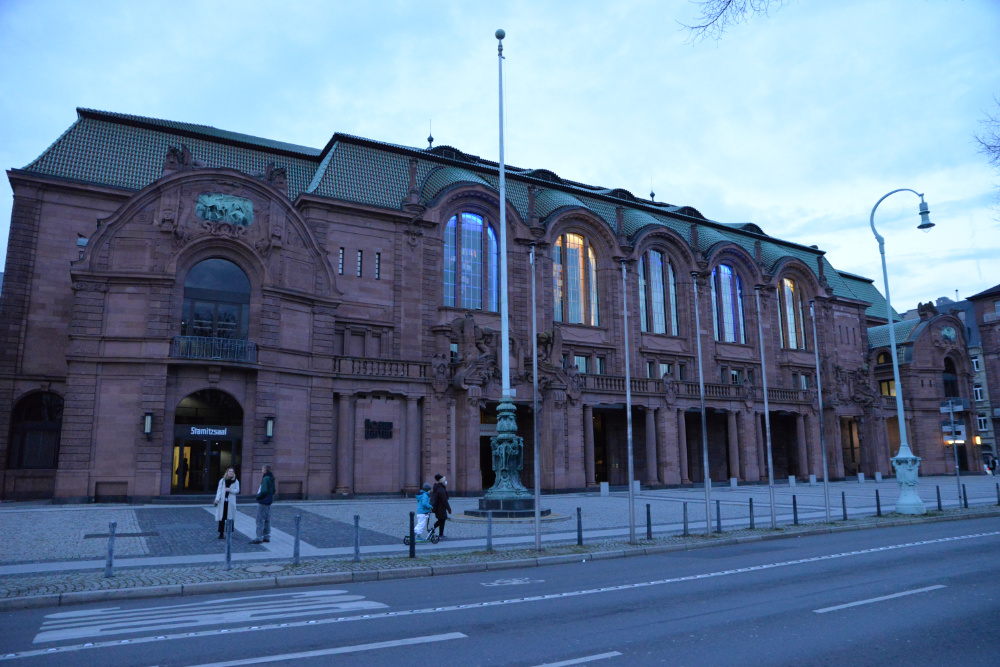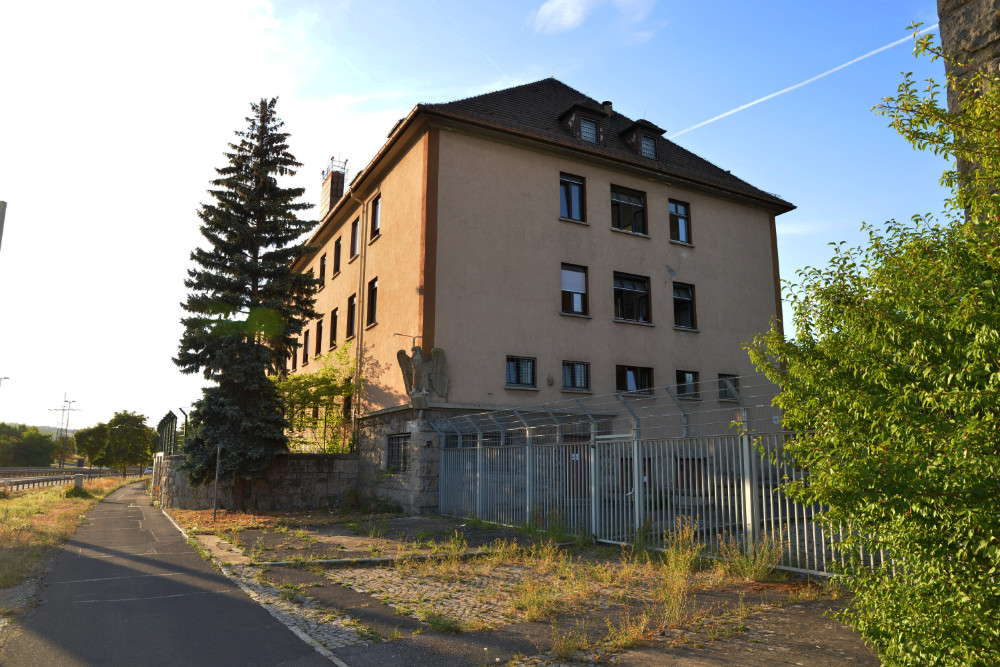Introduction
If there is one person who has made a huge impact on the history of the 20th century, it is undoubtedly Adolf Hitler. Up until today, interest in Hitler and his Third Reich is still great, witnesssed by the never ending flow of books about the dictator. The urge is great to understand how it is possible that one man could rally such masses of people, that one person could exert such a devastating influence on human history.
Yet, that is an incomplete approach. Adolf Hitler cannot be explained solely from the personality of Hitler himself. Although it is difficult to overestimate his role, it must be prevented that everything be traced back to Hitler alone. As German historian Joachim Fest wrote about the Nazi leader in his exhaustive biography: "the overall circumstances, the relation, difficult to decypher, between the man and his time and between the time and the man," must be considered in particular. We can find a similar notion with British Hitler biographer Ian Kershaw. He argued that Hitler could do as he did because many Germans were keen to help him. "The dynamics unleashed by the regime could only be explained from the interaction between Hitler’s intentions and the structural pressure that was being put on him by the ranks and institutions subordinate to him, leading to ever more radical solutions."
In this article, attention will also be paid to the personality of Hitler himself, as well as to the circumstances that explain the power of the Führer. The driving force emanating from Hitler as well as the external forces that affected him must be dealt with. Easy, unequivocal answers will not be given here for the simple reason that they do not exist.
In order to keep this article surveyable, frequent referrals will be made to articles in which certain themes will be dealt with in more detail.
Definitielijst
- Führer
- German word for leader. During his reign of power Adolf Hitler was Führer of Nazi Germany.
- Nazi
- Abbreviation of a national socialist.
Images
Origin and childhood
Adolf Hitler has his roots in Waldviertel, a predominantly rural area in the north of Lower-Austria butting on the Bohemian border. His father Alois was born there on June 7th, 1837, the illegitimate child of Maria Anna Schicklgruber. Five years later she married Johann Georg Hiedler. Probably due to the poverty in which the couple lived, Alois was entrusted, prior to the death of his mother in 1847, to the care of Johann Georg’s junior brother, Johann Nepomuk, a wealthy farmer. The foster father, who spelled his name Hütler instead of Hiedler, took care of Alois as if he were his own son. He was able to attend primary school and he went to Vienna as an apprentice shoemaker. It is remarkable that Alois had his name Schicklgruber changed to Hitler in 1876. His foster father had an official entry made in the birth registry that his brother was Alois’ father. It is doubtful however whether Johann Georg was the real father. Most historians assume that Johann Nepomuk was the biological father but there is no conclusive evidence for this theory either. There is even less evidence for the assumption that Hitler’s grandfather might have been a Jew. In any case, all this makes the identity of Hitler’s grandfather from the father’s ascendence rather uncertain.
Despite his modest background, Alois made a good career for himself with the k.u.k. Finanzwache, the Austrian Customs, rising to an leading function. His love life was less glamorous however. He was married three times and had 15 children of which a few died at a young age. His third marriage was to Klara Pölzl. She already had two children from an earlier marriage and was the granddaughter of Johann Nepomuk! From this marriage, Adolf Hitler was born. He emerged into this world on April 20th, 1889 in the Austrian town of Braunau am Inn. Three previously born children had died at a tender age.
"I consider it a hint by Providence that fate has designated Braunau am Inn as my birthplace," Hitler begins in Mein Kampf. "because this small town lies on the border between two German states which we, of the younger generation, shall unite with all means at our disposal. In my idea, this little town on the border is the symbol of a grand mission." In reality however Braunau hardly played a role in his life.
When Hitler was hardly four years of age, the family moved to Passau in Bavaria, due to a new phase in Alois’career. Being a top notch official in Customs he made good money so young Hitler never wanted for anything, contrary to what he pretended later on. He did not have a strong bond with his father however; Alois did demand respect and obedience from his children - something he dared force out of them by cuffing - but in fact he did not concern himself much with the education. Hitler’s mother however did devote herself to the familiy wholeheartedly and in so doing, compensated for the lack of attention from his father. Hitler later wrote "I had respect for my father but I loved my mother." Little is known about Hitler’s youth but based on what we know for certain, Hitler seems to have had a rather normal childhood for the time. The combination of a more authoritarian father and a compensating mother was a rather common familiy pattern at the close of the 19th century.
After his father had retired, the family moved again several times: to Hafeld 1n 1895, to Lambach in 1897 and to Leonding near Linz in 1898. Here, Hitler finished primary school without problems worth speaking of. That ended with his transfer to the Realschule. His grades dropped and Hitler did not excel by his committment. His tutors described him as ‘against the grain, arbitrary, a know-it-all and irascible’. Moreover, tension at home increased. His father lost his grip on his son who slowly turned into a grumpy, uncommunicative young man.
Alois Hitler died suddenly in 1903 and the death of the sometimes tyrannical father was a relief for the entire family. Materially, they did not want for anything. Yet this did nohing to change Hitler’s attitude and his results at school. Ultimately he dropped out from school in 1905 - he was 16 years old then - without a clear vision of the future.
He went to live again with his mother who had moved to Linz in the meantime. He spent the next years there drawing, reading, writing and going to operas or concerts. That way, Hitler met August Kubizek and they became friends., A few characteristics of Hitler emerged from Kubizek’s descriptions that would become increasingly clear in later years: the intense gaze, the leaning towards delivering long monologues, the urge to fulminate against anything he despised. Kubizek wrote: "[…] in all my life I have not known a single human whose […] eyes so totally dominated the face as those of my friend. They were the light eyes he had inherited from his mother. The somewhat tight, penetrating glance was even stronger in the son […]. It was ominous how fast the expression in those eyes could change, especially when Adolf was speaking […].
Kubizek and Hitler shared their passion for opera. Especially his admiration for Wagner was boundless. It was also in this period that Hitler spoke explicitly about a future as an artist for the first time. In 1906, he paid his first visit to Vienna, the Imperial capital. Here probably the idea grew to take up study at the Academy of Arts. This was upset by the illness of his mother (breast cancer). In September 1907, as the illness seemed somewhat stabilised, he returned to Vienna once more to take the admission test for the Academy of Arts. This turned out to be a grave disillusion. Hitler did pass the first selection but did not pass the final examination. For someone who had never had any doubts about himself, this must have been a severe blow. This is also witnessed by the fact that he never disclosed his failure, neither to his mother nor to Kubizek.
The next blow struck even harder: at the close of 1907, his mother’s condition deteriorated rapidly. She died December 21st. In her he probably lost the one person he had ever really loved. "In my entire career of 40 years, I have never seen a young person so deeply unhappy from the pain and the heartache as young Adolf Hitler," doctor Bloch remembered in November 1938.
This period was often referred to in order to explain Hitler’s anti-Semitism. There is no reason whatsoever for this though. There were no Jews on the board of the Academy that rejected Hitler. Dr. Bloch was Jewish though but Hitler remained forever thankful to him because of the good care he had taken of his mother. Hitler even had the former house physician, the only one out of all Jews in Linz protected by the Gestapo.
Definitielijst
- Jews
- Middle Eastern people with own religion that lived in Palestine. They distinguished themselves by their strong monotheism and the strict observance of the Law and tradition. During World War 2 the Jewish people were ruthlessly persecuted and annihilated by the German Nazis. . An estimated 6,000,000 Jews were exterminated.
- Mein Kampf
- “My Struggle”. Book written by Adolf Hitler, outlining the principles of National Socialism.
Images
The Viennese years
Adolf Hitler returned to Vienna in 1908. This move was commonly considered the turning point in his life. It is undoubtedly true that his period in Vienna left a deep impression and influence. It is however not correct to argue, as Hitler often did, that the development of his character and his political ideas can be traced back exclusively to this period.
At the turn of the century, Vienna was the perfect cross section of the possibilities and problems of that time. The Imperial capital was characterised by modernism (the painter Gustav Klimt for instance) and intellectual rejuvenation but also by poverty and immigration. The population of the city had more than doubled over 40 years, including many Czechs. The number of Jews in Vienna was also higher than in other European cities. In 1910, Vienna counted 175.300 Jews, forming 8.7 per cent of the total population. Many locals felt threatened by the unremitting flow of migrants that put pressure on the German culture; by the growing labor movement, by the increase of ethnic conflicts etc. Anti-Jewish feelings were rule rather than exception. Important to notice: in this connection Jewish meant more than just a follower of the Jewish faith; Jewish stood for a liberally thinking, internationally oriented attitude that did not shy away from breaking traditions, trying new things and breaking taboos. Defined in this way, the Jewish share in Viennese culture and science was large.
In reaction to this, unions, parties and mass movements came into being from the end of the 19th century onwards that advocated a radical nationalism. This was the world in which Adolf Hitler was to take his first steps as an independent adult.
Thanks to his orphan’s allowance and the legacy of his mother, he could sustain himself for a year in Vienna without having to search for a regular job. His plan was to take up the study of architecture. Strangely enough he never really got to it. He retreated to the life he lived before the death of his mother, sketching, reading and painting, rambling the streets and attending operas together with Kubizek who had also traveled to Vienna.
Kubizek noticed that Hitler was very imbalanced. Periodes of hectic activity alternated with bouts of lethargy, doing nothing at all. When he had an idea, plans for a play of his own for instance, he could throw himself onto his work like a man possessed. As often as not however, the idea never came to fruitition. We will also find that behaviour in the future dictator: the leaning to let things take their course, overestimation of himself and the lack of sense of reality, the sudden attacks of rage against anyone and anything.
Adolf Hitler became increasingly interested in politics. During his teenage years in Linz, he already was enthused with the ideas of Georg Ritter von Schönerer, whose pan-German nationalism he defended. In his program there were already elements that we will find within the N.S.D.A.P. later on: the cultural superiority of everything German, the anti-liberal and anti-socialist heritage and also the radical anti-Semitism. Like Schönerer, Hitler also abhorred the machinations of the Austrian parliament. Hitler visited parliament regularly and witnessed the debates frequently turning into all-out skirmishes and name calling. The distaste for parliamentary principles, which Hitler would show later on, certainly had its roots here.
Another figure admired by Hitler was Karl Lueger, mayor of Vienna. Hitler found the way in which he conducted politics especiallly inspiring: "I wanted to hate him, yet I could not do anything but admire him because he was a gifted orator." Hitler not only admired Lueger for his effective retorics but also for the way in which he managed to dominate the masses in order to achieve his goals.
A third important influence on Hitler’s ideas was the presence of a strong socialdemocratic movement. He hated everything this party stood for: the Marxist program, the internationalism, the rights of laborers and trade unions.
Despite the unmistakable influence of all this, Hitler had not yet developed an ideological view on the world during this period, despite what he wrote in Mein Kampf.
In any case, his personal situation did not get any better. In October 1908 he was turned down by the Academy for the second time. After this he severed all connections with his family and Kubizek. Due to a lack of money, Hitler was also forced to move. The period 1908 - 1909 has hardly been documented but it is obvious that Hitler had reached the lowest point in his life. His financial reserves were all but depleted and he lived like a tramp. When Hitler started painting and selling picture postcards, his situation improved. On February 9th, 1910, he was able to exchange the shelter for the homeless for a man’s hostel. Here he would spend the next three years.
Hitler’s own dire situation coincided with massive unemployment, sharply rising prices and a grinding shortage of housing in Vienna., Ever more vehement protests were being raised against this, in particular by the socialdemocrats who managed to mobilise the laborers and the unemployed. This not only evoked Hitler’s hatred, he was also afraid of it. In any case, his hate for the socialdemocracy was not yet connected to anti-Semitism.
Hitler argued in Mein Kampf that he had begun to despise the Jews only in Vienna: "At that time the largest turnover I had ever experienced took place within my body. I had changed from a half world citizen to a fanatic anti-Semite." This however is a myth, invented by the dictator himself to suggest a straightforward development of his view on the world. Undoubtedly, Hitler made contact with the whole range of anti-Jewish clichés and prejudices and was affected by them but that does not necessarily mean he identified with them yet. Without any doubt, Hitler shared a number of anti-Semite prejudices of the German-nationalistic environment but he still was far removed from the paranoid hatred towards the Jews, around which all his political actions would pivot later on. The development of his anti-Semitic ideology only commenced after the First World War.
Definitielijst
- First World War
- Took place from 1914 till 1918 and is also named The Great War. The conflict started because of increased nationalism, militarism and neo-colonialism in Europe. Two alliances battled one another during the 4-year war, which after a dynamic start, resulted into static trench warfare. The belligerents were the Triple Alliance (consisting of Great-Britain, France, and Russia; later enlarged by Italy and the USA, amongst others) on the one hand and the Central Powers (consisting of Germany, Austria-Hungary, Bulgaria and the Ottoman empire) on the other hand. The war was characterized by the huge number of casualties and the use of many new weapons (flamethrowers, aircraft, poison gas, tanks). The war ended in 1918 when Germany and its allies surrendered unconditionally.
- ideology
- A collection of principles and ideas of a certain system.
- Jews
- Middle Eastern people with own religion that lived in Palestine. They distinguished themselves by their strong monotheism and the strict observance of the Law and tradition. During World War 2 the Jewish people were ruthlessly persecuted and annihilated by the German Nazis. . An estimated 6,000,000 Jews were exterminated.
- Mein Kampf
- “My Struggle”. Book written by Adolf Hitler, outlining the principles of National Socialism.
- nationalism
- The pursuit of a people to become politically independence or securing such independence.
Images
The First World War
In 1913, Adolf Hitler left Vienna and settled in Munich. The reason for his leaving Austria was the fact that he was wanted by the authorities since he had not reported for conscription. His life style did not change however; despite the ambitions he said he had - becoming an architect, pursueing a course in building - he did not take any steps to see it through. That ended abruptly on June 28, 1914 when the Austrian successor to the throne, Archduke Franz Ferdinand was assassinated in Sarajevo by Gavrilo Princip, a Serbian nationalist. The attempt triggered the First World War and Hitler was offered the chance to take a new turn in his life. Without the experience from the First World War and the consequences thereof, Hitler would never have been the man he was to become later. Exactly this war would make his political career possible.
Just as in other European countries, a wave of enthousiasm and patriotism swept over Germany. In the last decades, Europe had been ravaged by crisies and tensions between the various superpowers. That came to an end now. Many people, not in the least the political elite, considered this war a necessary and beneficial answer to the existing problems. The elation was even strengthened by the conviction that the war would be won quickly. German writer Thomas Mann testified: "War! It was a cleansing, a liberation we felt and what kind of liberation." It turned out very differently however. In particular on the Western front, the confrontation turned into static trench warfare in which non of the belligerent parties had the power to push the enemy back over any significant distance. Moreover, all belligerent parties faced increasing inflation, shortages of food and even veritable food revolts. In 1916 in Germany, the two most succesful generals, Paul von Hindenburg and Erich Ludendorff ousted the civil politicians and seized power themselves, turning Germany into a de facto military dictatorship.
How did Hitler make out in the meantime? In mid August 1914 he reported to the Rekrutendepot VI (enlistment office) of the 2nd Bavarian Infantry Regiment. He followed basic training and was posted to the recently established 16th Reserve Infantry Regiment. On October 21, the regiment left for the front in Belgium. In an attempt by the German General Staff to force a breakthrough along the Channel coast, a series of offensives was launched. The 6th Bavarian Reserve Division, including Hitler’s regiment, was also thrown into battle near Ypre. In the early morning of October 29, Hitler experienced his baptism of fire during an attack on the Flemish village of Geluveld. The whole offensive came to nought and a large part of the regiment did not survive the battle.
Hitler had more luck. On November 3rd he was promoted to Gefreiter and a few days later he was ordered to report to the regimental staff as a courier. He remained a courier until the end of the war. His duty consisted of passing messages from the commander of the regiment to the front lines - without doubt a very hazardous task. He spent much of the time at the relatively safe regimental headquarters near Fromelles but during battles, when messages had to be passed on, the couriers faced grave dangers.
Hitler did not distinguish himself by conspicuous courage but he showed he was no coward either. On December 2 1914, he was awarded, along with other soldiers, the EK II (Iron Cross 2nd class) for allegedly having rescued their commander, Phillipe Engelhardt, during an enemy artillery barrage. Later on, he also received the EK I for having passed a message to the front, despite heavy fire. Socially however, he still was the lonely wolf he was before the war. Although he enjoyed the respect of the other soldiers, he had no real friends among them. He often kept his distance, although he was not shut out. The regiment stayed in Fromelles until 1916. After that it was transferred to the south to be deployed in the battle for the River Somme. Here, Hitler got injured in the leg. He was taken to Beelitz near Berlin for recuperation. There, Hitler noticed that dissension among the wounded soldiers and the population was very great. There was a grinding shortage of food, ever more massive labor strikes took place, initiated by socialdemocrats and the optimistic belief in victory of 1914 had completely disappeared. In particular this last item was incomprehensible to Hitler who still firmly believed in the necessity of war and in victory.
In addition, the discord also showed itself in a growing anti-Semitism, a result of the need for a scape goat. The Jews were not only blamed for enriching themselves shamelessly but also for dodging military service with all means possible. The Alldeutscher Verband, an ultranationalistic, anti-Semitic organisation (see also Third Reich) had gained ever more influence and spread the idea, by massive campaigns, that Jews made use of their money and their connections on a massive scale to sit out the war comfortably in safe spots. Although this picture did not match reality - compared to their share in the total population, about as many Jews fought alongside non-Jewish soldiers - this notion gained ground with ever more people.
Little is known about Hitler’s political ideas in this period. Most witnesses declare that he made few political statements, in contrast to his years in Vienna. Yet, the First World War strengthened a few of his ideas. His social-darwinistic vision on society, whereby in human society as well, only the strongest survive, was confirmed by his experiences in the war. He also had no trouble with discipline and hierarchy within the army, on the contrary though, he felt at home within this system. These experiences have undoubtedly contributed to his hierarchic thinking and the organisational structure of the N.S.D.A.P. later on. Moreover, it would be hard to believe that Hitler was not influenced by the growing radicalism of anti-Semitism.
In the spring of 1917, Hitler returned to his regiment. It was further deployed in various places: near Vimy, Ypre, the River Marne, Mesen-Wijtschate and Komen. When Hitler was injured a second time in mid October, due to a gas attack, the war was already lost for the Germans. With their offensive in the spring they had gained some ground but they had failed to achieve a definite breakthrough. The exhausted German army had no answer to the ensuing Allied counter offensive
Hitler was given first aid in a field hospital near Oudenaarde and was subsequently evacuated to the reserve hospital Pasewalk near Stettin. He arrived there on October 21 and heard the news of the surrender and the revolution.
Definitielijst
- dictatorship
- A form of government where the power in a country is in the hands of one person, the dictator. Originally a Roman regime in case of an emergency where total power would rest with one person during six months in order to face a crisis.
- First World War
- Took place from 1914 till 1918 and is also named The Great War. The conflict started because of increased nationalism, militarism and neo-colonialism in Europe. Two alliances battled one another during the 4-year war, which after a dynamic start, resulted into static trench warfare. The belligerents were the Triple Alliance (consisting of Great-Britain, France, and Russia; later enlarged by Italy and the USA, amongst others) on the one hand and the Central Powers (consisting of Germany, Austria-Hungary, Bulgaria and the Ottoman empire) on the other hand. The war was characterized by the huge number of casualties and the use of many new weapons (flamethrowers, aircraft, poison gas, tanks). The war ended in 1918 when Germany and its allies surrendered unconditionally.
- Infantry
- Foot soldiers of a given army.
- inflation
- An economic process of sustained increase in general price levels and devaluation of money.(loss of purchasing power)
- Iron Cross
- English translation of the German decoration Eisernes Kreuz.
- Jews
- Middle Eastern people with own religion that lived in Palestine. They distinguished themselves by their strong monotheism and the strict observance of the Law and tradition. During World War 2 the Jewish people were ruthlessly persecuted and annihilated by the German Nazis. . An estimated 6,000,000 Jews were exterminated.
- mid
- Military intelligence service.
- offensive
- Attack on a smaller or larger scale.
- Regiment
- Part of a division. A division divided into a number of regiments. In the army traditionally the name of the major organised unit of one type of weapon.
- revolution
- Usually sudden and violent reversal of existing (political) the political set-up and situations.
Images
The Weimar Republic
Hitler has always portrayed the moment he heard about the surrender in Pasewalk as the moment he decided to become a politician. Later on he liked to tell that he had had some sort of vision there to make Germany great once more. All this fits nicely into the Führer myth, the man destined to save Germany. It is not right though, this step was only taken in the course of 1919. Nevertheless, it is obvious that in this period, the two aspects of his political ideology were quietly being fused together: his antipathy towards the Jews and his fear for the left.
After Hitler had been discharged from hospital on November 19, 1918, he found Germany in chaos (see Third Reich page 7). As the real progress of the war had been kept secret from the German population by censorship and propaganda, the German surrender hit unexpectedly and very hard. This fed the idea they had been abandoned, betrayed, the so-called dagger legend. The mood therefore was embittered and rebellious. After the October revolution in Russia in 1917, Germany knew its own November revolution. In imitation of the Soviets in Russia, councils consisting of laborers and soldiers were established all over the country. They took over control in many cities. This was most noticable in Bavaria where socialdemocrats under Kurt Eisner had seized power and proclaimed the Freistaat Bayern (Free state of Bavaria). After Eisner was assassinated, the Communists took power. However, they stood no chance against the Freikorpse (Free Corps), nationalistic paramilitary organisations that ultimately ‘liberated’ Munich.
Adolf Hitler remained conspicuously on the sidelines. He did not make himself available to the Bavarian government, nor did he join the Freikorpse. He quietly awaited developments in his barracks in Munich. Right after the end of the so-called Raden regime did he show his true face and sided openly with the counter revolution. In this connection, he was ‘discovered’ by Karl Mayr. Captain Mayr was a member of an intelligence agency that was tasked with spreading anti-Communist and nationalistic ideas withinh the army. Hitler was one of the first informers of this organisation and from 1919 onwards, he delivered lectures himself about subjects as ‘Peace terms and reconstruction’, ‘Emigration’ and ‘Social and political slogans.’ There Hitler discovered his greatest talent: he could speak! This was confirmed by various witnesses: "In particular Mister Hitler is a born speaker who forces the audience to listen to him and to think along with him by his fanatism and his popular conduct during a meeting"
In his speeches, anti-Semitism was the focal point. The audience proved very susceptible to this. For the first time, the basic elements of Hitler’s ideology came to the front: anti-Semitism based on a racial theory and the creation of a unifying nationalism based on the necessity to combat the power of Jews at home and abroad. In a letter to his colleague Adolf Gemlich, he wrote: "The ultimate, unshakable goal must be the total elimination of the Jews." Hitler stood not alone in this attitude: it was spread widely in circles of the rejuvenated ‘Reichswehr’ and the Freikorpse.
On September 12, 1919, Hitler, as informer, attended a meeting of the Deutsche Arbeiterpartei (D.A.P. or German Workers Party) in Munich, one of the many populist-nationalist groups that had emerged from the Alldeutsche Verband after 1918. In itself, there was nothing special about the D.A.P. but Hitler became impressed by a pamphlet the chairman, Anton Drexler handed to him. Apparently he was particularly impressed by the central theme of the pamphlet; the notion that nationalism and socialism be connected, in other words, the laborers had to be freed from the so-called false doctrine of marxism and won over to the national cause. Hitler joined the party, in particular as it offered him a chance to manoeuvre himself into the spotlight and to reform the party after his own ideas.
In mid October 1919, he delivered his first big speech in the hall of a brewery in Munich. This turned out to be a really succesful experience and it gave him more self confidence. Each time, more and more people attended the meetings of the D.A.P. Within the shortest time possible, Hitler evolved into the star among the speakers in the party. He lashed out vehemently against the Treaty of Versailles and the Jews. Together with Anton Drexler, Hitler started working out a party programme (see Programme N.S.D.A.P.) The programme contained nothing new but contained existing notions: the unification of all Germans in one Greater-Germany, rejection of the Treaty of Versailles and a racial anti-Semitism. This programme was received well on February 24, 1920. The D.A.P. and Hitler as well, did not amount to anything yet; he was little more than an agitator of a non-descript racial party to which the press hardly paid any attention. The base of the party had to be expanded if Hitler ever wanted to play a significant role.
Even though Hitler was an irreplacable factor in the expansion of the party, the circumstances were to his advantage as well. For decades, elements of nationalsocialism had been present in Germany and in other European countries: nationalism, anti-socialism, biological anti-Semitism, social Darwinism, racism (see Third Reich page 3). This involved the so-called populist racism, the belief in a harmonious German social and hierarchic order. Add to this the explosive mixture of economic misery, an instable society and the collective trauma of the lost war in combination with someone who manages to exploit these circumstances cleverly and ruthlessly. All that attributed to the succes of the party which was renamed Nationalsocialistische Deutsche Arbeiterpartei (N.S.D.A.P. or Nationalsocialist German Workers Party).
The powerbase of the party expanded slowly but surely. Under the influence of Hitler, the party was very active and increasingly surpassed the other movements. Almost every week, demonstrations and meetings were held, in particular in Bavaria. Hitler showed himself tireless and inimitable at other meetings as well. Ever more people showed up at meetings of the N.S.D.A.P. The number of party members increased as well: from 190 in January to 3.300 in August 1921. People like Rudolf Hess, Hitler’s future secretary and Alfred Rosenberg, the future ideologist of the party, joined the movement.
The message these people heard was invariably the same: Hitler’s boundless agitation against Versailles was paired with hate-filled attacks on the Weimar Republic and its representatives. Hitler left no doubt that in his opinion the democratic system was outdated: "Do away with those party political machinations that are wrecking our people," he called out in April 1920. With this he also played on a widely spread anti-democratic and anti-parliamentary mood. The central theme in alomst all speeches was a declaration of war on Jewry for which he received, according to witnesses: "a stormy and continous approval and applause." The Jews, in Hitler’s view a destructive, parasitic race that attempted to achieve world domination, had to be eliminated from society. Thus the foundation for a racially pure ‘Volksgemeinschaft’ (people’s society) had already been laid.
Supported by Karl Mayr and Dietrich Eckhart, a publicist who introduced Hitler to the higher circles who were going to finance the party, the N.S.D.A.P. grew into an important factor of power in Bavaria. Hitler himself became chairman of the party in 1921 with dictatorial powers and founded his own paramilitary unit, the SA (Sturmabteilung or stormtroopers). A captain in the Reichswehr, Ernst Röhm emerged as its key figure. This SA did not only act as bodyguard for the party and its most prominent figures but also did not hesitate to ‘engage the enemy’: political opponents and Jews were dealt which drastically. Soon, the SA dominated the streets of Munich.
In 1922, a large rightist demonstration against the government took place in Munich. Obviously, the N.S.D.A.P. participated and Hitler was one of the speakers. The progress of the demonstration showed that the people’s agitator from the beer halls and his movement had grown into a factor of power in the camp of the rightists that could no longer be ignored. Some well known figures like Hermann Göring, the future second man within the party and in particular Julius Streicher, future editor of the anti-Semitic weekly Der Stürmer, joined the party and the number of members rose to over 20.000. The power of the N.S.D.A.P. in Bavaria grew in such a way that the authorities considered a coup by Hitler and his party a very real possibility.
Definitielijst
- Führer
- German word for leader. During his reign of power Adolf Hitler was Führer of Nazi Germany.
- ideology
- A collection of principles and ideas of a certain system.
- Jews
- Middle Eastern people with own religion that lived in Palestine. They distinguished themselves by their strong monotheism and the strict observance of the Law and tradition. During World War 2 the Jewish people were ruthlessly persecuted and annihilated by the German Nazis. . An estimated 6,000,000 Jews were exterminated.
- mid
- Military intelligence service.
- nationalism
- The pursuit of a people to become politically independence or securing such independence.
- propaganda
- Often misleading information used to gain support among supporters or to gain support. Often used to accomplish ideas and political goals.
- racism
- Discrimination based on race.
- Reichswehr
- German army during the Weimar republic.
- revolution
- Usually sudden and violent reversal of existing (political) the political set-up and situations.
- socialism
- Political ideology aiming at slight or no class differences. Means of production are owned by the state. Evolved as a response to capitalism. Karl Marx tried to substantiate socialism scientific.
- Sturmabteilung
- Storm detachment. Semi-military section of the NSDAP. Founded in 1922 to secure meetings and leaders of the NSDAP. Their increasing power was stopped during “The night of the long knives”, 29 and 30 June 1934.
- Weimar Republic
- Name for the German republic from 1919 until 1933. Hitler ended the Weimar republic and founded the Third Reich.
Images
The difficult years (1923 - 1929)
Slowly but surely, a Führer cult emerged within the N.S.D.A.P. The march on Rome in 1922, led by Benito Mussolini had left a deep impression on Hitler’s party comrades. They began to see their leader ever more as the Mussolini of Germany and attributed Messianic qualities to him. The Führer was the future saviour of the country. This Führer cult was still very immature and certainly not yet the pivotal point of party ideology or party organisation. Besides, Hitler did not yet consider himself the saviour of the country but an agitator who knew how to rally the masses.
The occupation of the Ruhr area by French and Belgian troops in January 1923 gave rise to an explosive mood that Hitler could turn to his advantage. He watched the number of members grow to 55.000. Soon large scale passive protests erupted against the Franco-Belgian occupation. The economic consequences were interminable, in particular as a result of an inflation hitherto unknown. From one day to the next, the middle class and the proletariat discovered they had been robbed of their savings while speculators took advantage of the situation to gain enormous wealth. A wave of demonstrations and strikes in the summer of 1923 had the country shake on its foundations. The disastrous situation of the economy and inherent political instability made that Adof Hitler became convinced that this was the moment. In the evening of November 8, 1923, Hitler, some prominent Nazis and the SA, in co-operation with General Erich Ludendorff of the Conservative Nationalists, attempted to seize power in Munich. (Bierkellerputsch).
The coup was a dismal failure. Hitler and his followers were arrested but sentenced to strikingly short imprisonments. He made use of his stay in prison to write Mein Kampf. In itself, he did not introduce any new ideas but 1923 - 1924 were important years in the sense that he expressed his world vision and ideology in a coherent and systematic way.
On December 20, 1924, Hitler was released from Landsberg prison. The rightist people’s movement had completely fallen apart during his absence. The N.S.D.A.P. had been banned and Hitler was not allowed to make public speeches anymore. Yet, he did not lose faith, on the contrary, during his internment in Landsberg he had become convinced he was the man of choice to drag Germany out of the swamp. That however was not so clear cut: the social situation was changing drastically in the meantime. While Hitler had to watch his step, the Weimar Republic was developing into a stable state: the economic crisis was contained and political stability increased, despite numerous changes of governemnt. Germany had joined the League of Nations and was once more accepted as a full fledged member of the international community.
Support for the populist parties dwindled in 1924 to hardly 3% of the population. In 1928, the N.S.D.A.P. hardly won 2.6% of the votes in the Reichstag elections. The conclusion is obvious: the fertile soil for extreme right wing parties had disappeared.
Yet this period was not unimportant for the development of the N.S.D.A.P. and Hitler’s role. He managed to set himself up as the undisputed leader of the right. The N.S.D.A.P. became a real Führer party. When in February 1925 the ban on the party was lifted, Hitler left no doubt whatsoever: "For nine long months, I have not said a word. Now I am leading the movement and I will not let anyone dictate terms." Hitler was the party and was increasingly put forward by its members as the Messiah figure that would liberate Germany. The members were persoally bound to the Führer and had to submit themselves to his decisions unconditionally. There was no place in the party for those who did not want to do so. Ernst Röhm for instance withdrew completely from the movement out of discord with the role Hitler alloted to the SA.
The internal organisation was also set on the right footing. Whereas she knew hardly any structure in the years prior to the Putsch, in 1929 the N.S.D.A.P. stood on a much firmer base, despite the poor results of the elections. In 1928 the number of members rose to 100.000 and the party’s cadre was for more structured. Men like Gregor Strasser, Heinrich Himmler, Joseph Goebbels and Hermann Göring came forward and played an important role in the expansion of the party. They participated in the establishment of Nazi youth movements like the HJ (HitlerJugend or Hitler Youth), the BDM (Bund Deutscher Mädel or Union of German girls), unions of teachers and doctors, the propaganda department, the SA and the SS.
As regards content, nothing changed. The party programme remained the same: the anti-Semitic, anti-Marxist and anti-Democratic ideas and the rejection of the Treaty of Versailles remained unchanged without compromises. As far as Hitler was concerned, the notions Jewish and Marxism were interchangeable: "The Jew remains the global enemy and his weapon, Marxism is the curse of humanity." A idea that emerged more often was the problem of Lebensraum (space to live). In Hitler’s view, the economic problems could best be solved by an expansion of territory eastwards, at the cost of Russia. In order to achieve this, the German population had to become powerful enough, so Germany needed to become a strong military power once more.
Generally, the N.S.D.A.P. was considered a neglectable movement. Therefore, the Bavarian Minister of the Interior saw no reason to prohibit Hitler to speak in public any longer. The leader of the N.S.D.A.P. made his comeback on March 9, 1927 with a speech in circus Krone in Hamburg. Yet, even meetings where Hitler was the main speaker drew less and less listeners. His retorics and the content of his speeches simply did not strike home any more. The message that Germany was slowly sinking was hardly credible in times of economic progress and relative political stability. Hitler himself though oozed confidence prior to the Reichstags elections in May 1928: "I know once more that Providence will take me to where I would have been four years ago." The elections turned into a farce though, the party won less than 2.6%, while their greatest opponents, the Socialdemocrats and Communications won the elections undisputably.
Yet, the importance of this period for the party cannot be underestimated. Outwardly, there may have been no successes but the internal growth of the party formed the base for its later expansion.
Definitielijst
- Führer
- German word for leader. During his reign of power Adolf Hitler was Führer of Nazi Germany.
- ideology
- A collection of principles and ideas of a certain system.
- inflation
- An economic process of sustained increase in general price levels and devaluation of money.(loss of purchasing power)
- League of Nations
- International league of Nations for cooperation and security (1920 – 1941). The League was located in Geneva, in neutral Switzerland. During the 1930s the league of nations could do little against aggressive behaviour of Japan, Manchuria, Italy, Abyssinia and Hitler. The league of nations was in fact the predecessor of the United Nations.
- Lebensraum
- “Living space”. Nazi term indicating the need for the overpopulated German lands to expand.
- Mein Kampf
- “My Struggle”. Book written by Adolf Hitler, outlining the principles of National Socialism.
- Nazi
- Abbreviation of a national socialist.
- propaganda
- Often misleading information used to gain support among supporters or to gain support. Often used to accomplish ideas and political goals.
- Putsch
- Coup, often involving the use of violence.
- Weimar Republic
- Name for the German republic from 1919 until 1933. Hitler ended the Weimar republic and founded the Third Reich.
Images
The 1929 economic crisis and the breakthrough of the NSDAP
In that same year, the first signs of an end to the economic progress in recent years appeared. There were a striking number of bankruptcies in the agricultural sector as a result of the steadily decreasing prices of agricultural products, unemployment rose again to over 3 million and there were increasing conflicts between workers and factory owners. Moreover, the German economy depended heavily on the Americans by many short term loans. American money was largely responsible for the revival of the German economy in the mid 20s. There were however few internal investments and social unrest was great, even in those golden years. Confidence in the Weimar democracy was low, not many people had feelings for the Weimar Republic, meaning that only a minority would want to defend that same republic and its values.
Riding on the increasing economic malaise, popularity of the N.S.D.A.P. rose again. Between October 1928 and October 1929 the number of members increased from about 100.000 to 150.000. In rural areas in particular the party had ever more followers but from a lesser sector as well, such as students, came more support. That could be attributed to the role of Baldur von Schirach, the chairman of the N.S.D.S.B. (Nationalsocialistische Deutsche Studentenbund or Nationalsocialist German Students Union).
The N.S.D.A.P. presented herself very actively; campaigning was intensified with numerous meetings at various places in Germany. She presented herself as a young and dynamic party while Hitler worked himself up to a much appreciated speaker in the higher rightist-conservative circles. Captains of industry could agree with the overt attacks on the politics of the Weimar Republic. Hitler spoke about the: "disastrous economic consequences of democracy" and the restoration of power and unity in Germany. He saw his prognoses confirmed: "It has all gone just as we have predicted," he said at the end of March 1929 full of malicious pleasure, "The German economy is all but dead." Despite the obvious increase of the importance of the party, she was still far removed from conquest of power. That required more.
Those circumstances occured when on October 24, 1929, the New York Stock Exchange crashed. The global consequences were interminable. As a result of the crisis, many loans could not be paid back and banks went out of business. This resulted in a snowball effect: the deteriorating econmy plunged into a depression. As a result of the ensuing deflation, trades collapsed and subsequently a large part of the world ended up in a low conjuncture. The Crash of 1929 and the subsequent Great Depression were the largest financial crisis of the 20th century. The crisis Hitler needed was a fact.
The economic crisis turned into a system crisis where the State itself was being questioned. There already was little sympathy for the Weimar Republic but this feeling turned into hatred. Hatred towards the policy of the ‘red government’, against the Communists, against the Jews, against ‘the system’. Democracy itself was at stake. Moreover, the psychological consequences must not be underestimated. The German population had suffered heavily during the past years and this new crisis, overshadowing anything gone before, broke the mental resilience of many people. A general feeling of doom and the belief that the end of time was imminent, grew amongst many people, even among those who were not directly affected by the crisis. Many felt betrayed and abandoned. Under these circumstances, the message of the N.S.D.A.P. did not miss its mark.
At least as important as the hate message of the Nazis was the hope Hitler gave the Germans. In these insecure times, the call for a strong leader became louder and louder and no one else but Hitler managed to profile himself so well as the political Messiah who would drag the Germans out of the swamp on the road to a new society, to new national greatness. A German worker stated: "The terrible depression threatened to impale all economic life. Thousands of factories closed their doors and hunger was a daily companion of the German worker. In addition to that, Jews maintained an artificial shortage. (…) As for myself and just like many others, I had lost everything I owned and so I joined the nationalsocialist party in early 1930."
Numerous people found their way to the N.S.D.A.P. and that showed in election results. The major breakthrough came with the elections for the Reichstag in September 1930. In the run-up to the elections, Joseph Goebbels, freshly appointed Reichspropagandaleiter (propaganda leader) launcherd a massive propaganda campaign: more than 34.000 meetings were held. Central themes this time were not the attacks on Jewry or the ideas about Lebensraum (although these were discussed often enough) but the hatred towards the Weimar Republic and the new, still to be established Volksgemeinschaft (People’s Community). This made the N.S.D.A.P. more attractive to citizens of all classes and interests.
The result was a real landslide: the N.S.D.A.P. jumped from 2.6% and 12 seats in the 1928 elections to 18.3% and 107 seats in 1930. Some 6.5 million Germans had voted for Hiter. The Nazi train had really departed now.
Definitielijst
- democracy
- From the Greek: demos (the people) kratein (rules). Democracy is a form of government elected by the majority of the people in which the people can check on the leaders and have the government resign in case a majority of the people no longer agrees with the government.
- Jews
- Middle Eastern people with own religion that lived in Palestine. They distinguished themselves by their strong monotheism and the strict observance of the Law and tradition. During World War 2 the Jewish people were ruthlessly persecuted and annihilated by the German Nazis. . An estimated 6,000,000 Jews were exterminated.
- Lebensraum
- “Living space”. Nazi term indicating the need for the overpopulated German lands to expand.
- mid
- Military intelligence service.
- Nazi
- Abbreviation of a national socialist.
- propaganda
- Often misleading information used to gain support among supporters or to gain support. Often used to accomplish ideas and political goals.
- Weimar Republic
- Name for the German republic from 1919 until 1933. Hitler ended the Weimar republic and founded the Third Reich.
Images
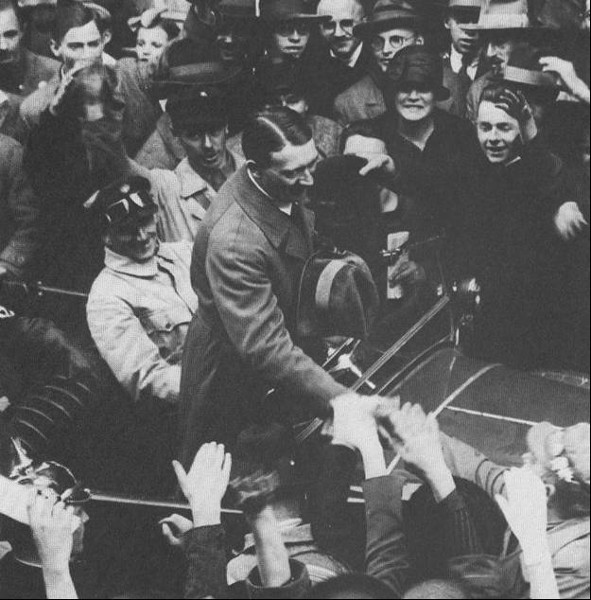 Despite the disappointing election results, HItler continued traveling across the country tirelessly to spread his political message. Source: GHDI.
Despite the disappointing election results, HItler continued traveling across the country tirelessly to spread his political message. Source: GHDI.The road to power
Despite the resounding victory, Hitler could not exploit it yet. The moderate political powers decided to join forces. Out of fear for a new Nazi victory, the socialdemocratic SPD supported the government of the Catholic-conservative chancellor Heinrich Brüning. The fear of new elections and the risk of yet another Nazi victory was larger than the doubts the party had about the Brüning cabinet. For Hitler and his party, there was nothing left but relentless oppsition. They took it very literally. By disturbing the debates with senseless motions and interruptions they attempted to cripple the work of the Reichstag while out on the streets brawls and skirmishes were often organised. Hitler kept his distance from this street violence but only for tactical reasons. Internally, Hitler made it clear often enough that the choice of legality was just a tactical move and that: "whenever the situation permits" - that is after the seizure of power - "the constitutional state will be abolished." The Bavarian delegate Wilhelm Hoegner saw it correctly: "We do not believe that the savage wolves of yesterday will have changed into lambs today being tended to by peace loving shepherds."
In addition, the N.S.D.A.P. and Hitler himself were faced with some serious setbacks. The SA for instance was not at all satisfied with the role it had been allotted; they felt degraded financially and wanted more autonomy. Moreover they felt little enthousiasm for the parliamentary course Hitelr had chosen. Led by Walter Stennes, the SA leader in the eastern regions of Germany, a real revolt erupted whereby an attack on the SS was not shunned. Hitler was shocked by these events. Joseph Goebbels received full authority to cleanse the Berlin branch of the party from ‘subversive‘ elements while Hermann Göring was authorised to redress order in the areas where Stennes had been ousted. Ernst Röhm, who had been sidetracked for a while, was appointed Chief of Staff of the SA. Under his direction, the SA was restructured into a rigidly organised paramilitary formation.
This episode shows that the N.S.D.A.P. was not rooted as strongly as was thought. For a part this is to be attributed to Hitler’s personality. From numerous statements by people who have known Hitler well, the same doubts emerge each time: the Nazi leader may have been an impressive figure but could he cope as a statesman? Gregor Strasser described Hitler as a man with a near prophetical gift to judge big political issues correctly but he thought it was more by instinct than by his capability to sort out ideas. Hitler still was, like in his Viennese years, hardly organised, aloof and a little unbalanced. He was hardly reachable for party officials, dealt with matters superficially or not at all and shunned away from difficult decisions. He regularly called off meetings at the last moment or the subjects disappeared under Hitler’s characteristic interminable monologues. In them he spoke extensively about subjects that were of interest to him and often not about the subjects that should have been discussed. On the one hand, the Nazi leader was a strong, dominant personality, on the other hand a very insecure and undetermined person. Nevertheless, he never turned back on a decision once it had been taken. This made Hitler unreliable and unpredictable. Hitler had little feeling with the day to day running of the Nazi movement which meanwhile numbered more than 800.000. Other people like Martin Bormann or Joseph Goebbels played a far more important role in this.
In Hitler’s private life, not everything ran smoothly either. In 1929, his niece Angela (Geli) Raubal had moved in with him. What exactly the nature of their relation was, is difficult to ascertain but they undoubtedly had a very strong relationship. Even more than that, Hitler showed himself extremely jealous and possessive while 23 year old Geli hardly lacked for admirers. The more she attempted to free herself from his grip, the more pressure he put on her. On September 9, 1931, Geli was found dead, shot with Hitler’s pistol. The exact circumstances have never been discovered - suicide is the most likely theory - but the impact on Hitler was massive. He slid into a deep depression; some feared he would step out of politics at all or even end his life. Strangely enough, this personal crisis did not last long: following a visit to Raubal’s grave, his depression had vanished suddenly. Shortly afterwards he met Eva Braun. She was to stay with him until his death in April 1945.
Despite these problems, the party grew incessantly and the Nazis could be ignored less and less. Hitler and Göring even received an audience with Reichspräsident Paul von Hindenburg in October 1931 although without any concrete results.
1932 became a decisive year. For Hitler, it was one long election campaign. Important to notice however, Hitler’s road to power was no unstoppable, triumphant march to victory but an all or nothing attempt that could easly have gone another way.
The dominant subject in the first months of 1932 was the coming presidential election. Negotiations between the N.S.D.A.P. and Chancellor Brüning in an attempt to grant Von Hindenburg an additional term without an election - by an amendment of the constitution - yielded nothing. That put Hitler in a difficult situation: he could hardly do anything else but run for president because his millions of followers would not take it at all if he did not answer this challenge. On the other hand, Hitler stood little chance against Von Hindenburg, the hero of the Battle of Tannenberg in World War One. A defeat however would stain the aureole of untouchability and infallibiity that had been built up so meticulously. Despite an election campaign never witnessed before, the inevitable happened: Von Hindenburg was re-elected with 53%, Hitler ended up with 37%. Yet the Nazis could not really be desillusioned. The third candidate, the Communist Ernst Thälmann received hardly 10% and over 13 million people had voted for Hitler. The Führer cult had certainly found its roots in large parts of Germany.
The elections for the Federal states that followed in the months afterwards, confirmed the results: the N.S.D.A.P. easily made the minimum requirement of 30%. Even a ban on the SA and the SS could not stop the growth. In the elections for the Reichstag in July 1932, the Nazi party grew again, even becoming the largest party with 230 seats (37.3%). The N.S.D.A.P. did not win a majority in the new Reichstag though. The Brüning cabinet had been replaced by a government headed by Franz von Papen. Hitler declared himself willing to ‘fertile co-operation’ with a rightist government led by Franz von Papen under the Reichspräsident but did make two demands: abolishing the Reichstag at the earliest moment possible and lifting of the ban on the SA. Both requests were granted. The latter triggered an almost immediate increase of political violence.
This did not appear to have a negative impact on the popularity of the N.S.D.A.P. though. In the elections for the Reichstag in July 1932, the party reached 37.3% and 230 seats. These impressive figures did draw a distorted picture however: the growth of the party had slowed down over the last months, despite the relentless attempts of Hitler and his followers. His third Deutschlandflug (Flight all over Germany) during which he visited over 50 cities in less than a month, did not result in the expected victory. The party had counted on being so strong after these elections that Von Hindenburg could no longer ignore Hitler but that was a disappointment. Joseph Goebbels voiced the desillusion in his diary: "We will never win absolute majority this way. So, we take another course. Now we must have power and eradicate Marxism. In whatever way. Something must be done. The period of opposition is over. Action now!"
Hitler entered into negotiations with Kurt von Schleicher, the strong man within the Reichswehr and important advisor to Von Hindenburg, hoping to form a government dominated by the Nazis. Von Hindenburg, who could hardly hide his distaste for the Nazi leader, did not wish to appoint Hitler as Chancellor. The existing Von Papen cabinet remained at the helm but with this, the problems for the Weimar Republic were of course far from over. Von Papen realised this too: he wanted to take drastic action by introducing a few emergency laws and, with Von Hindenburg’s permission, to dissolve the Reichstag without having new elections immediately.
The Nazis and the Communists united in a motion of distrust against the Von Papen cabinet. The Chancellor suffered a massive loss of face and could do nothing else but announce new elections. These took place on November 6, 1932. For the Nazis, these elections resulted in total disaster: they lost more than 2 million votes. (-4.2% to 33.1%) and 34 seats (from 228 down to 196). Quite a lot of people had lost faith in Hitler. Moreover, the more bourgeois voters dumped him because of the violent conduct of the SA and Hitler’s use of plain anti-Semitic language which he had omitted in previous elections in his quest for respectability among bourgeois circles.
These election results made the formation of a government possibly even more complex. Hitler stuck to his intention not to join a government without demanding the function of chancellor. The parties supporting the government were still a minority so Von Papen neither enjoyed the support of the Reichstag nor from within his own government. President Von Hindenburg then shoved Kurt von Schleicher to the front as the new chancellor, a function Von Schleicher had long been aiming for. The role of the N.S.D.A.P. seemed over: membership dropped and there were people within the party, such as Gregor Strasser, who did not want to follow the course Hitler had set out any longer. Within the ranks of the SA patience also ran out. In the press, the Hitler movement was even being ridiculed as an historic episode: "All over the world, people talked about […] what was his name again, Adalbert Hitler? Later? Vanished without a trace!" That however was premature. Many were disappointed in Hitler because he obviously did not want to accept responsibility for a government. This did not mean however there was no fertile soil left for the Nazi ideas: the economic crisis, the fear of Communism and anti-Semitism had not disappeared from German society.
Definitielijst
- Communism
- Political ideology originating from the work of Karl Marx “Das Kapital” written in 1848 as a reaction to the so-called class struggle between the proletariat (labourers) and the bourgeoisie. According to Marx the proletariat would take over power from the well-to-do classes though a revolution. The communist movement aspires an ideal situation where the means of production and the means of consumption are common property of all citizens. This should end poverty and inequality (communis = common).
- Führer
- German word for leader. During his reign of power Adolf Hitler was Führer of Nazi Germany.
- Nazi
- Abbreviation of a national socialist.
- Reichswehr
- German army during the Weimar republic.
- Weimar Republic
- Name for the German republic from 1919 until 1933. Hitler ended the Weimar republic and founded the Third Reich.
Images
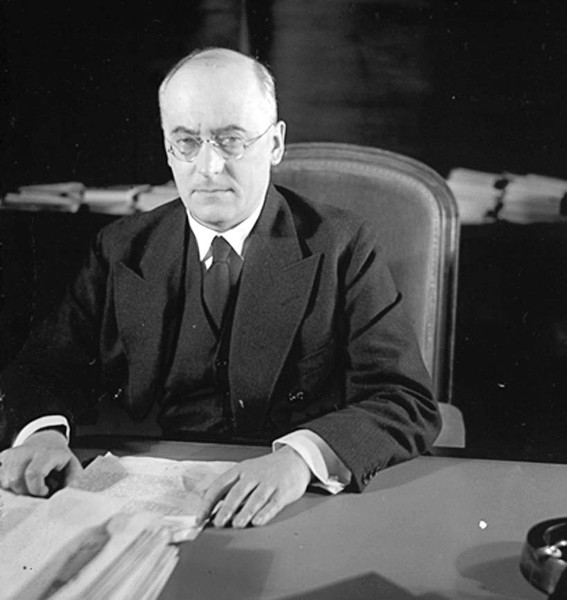 Heinrich Brüning becomes the new chancellor in 1931 and prevents the N.S.D.A.P. from coming to power. Source: GHDI.
Heinrich Brüning becomes the new chancellor in 1931 and prevents the N.S.D.A.P. from coming to power. Source: GHDI.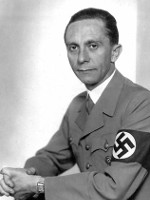 Joseph Goebbels played an increasingly important role in the running of the Naziparty. Source: GHDI.
Joseph Goebbels played an increasingly important role in the running of the Naziparty. Source: GHDI.Finally Reichskanzler
In January 1933 a situation arose few could have predicted. Kurt van Schleicher, a banker from Cologne and Nazi sympathiser, brought Hitler and Von Papen back together. Von Papen was out on revenge and wanted to unseat Von Schleicher while Hitler, by co-operating with Von Papen, could get his party out of the difficult situation it had landed in. In numerous secret talks between the three men, the big issues could be solved. President Paul von Hindenburg had lost his faith in Von Schleicher and within the tolerating majority in the Reichstag, support for the chancellor also disappeared. Von Hindenburg appreciated the rapprochement, in particular when Hitler seemed ready not to draw all power to his party. He did demand chancellorship though and that still was a little difficult.
January 28th, 1933 was a decisive day: Von Schleicher submitted his resignation and Von Papen managed to break Von Hindenburg’s resistance against Hitler’s chancellorship. Two days later, the Hitler cabinet was a fact. Apart from Hitler, there were only two Nazis in this government: Wilhelm Frick as Minister of the Interior and Hermann Göring as Minister of State without Portfolio. Von Papen became vice-Chancellor while other ministerial posts were occupied by independent conservatives and members of the Deutsche Nationale Volkspartei (D.N.V.P. or German National People’s Party) headed by Alfred Hugenberg. Warnings of the risk that was being taken here were not heeded. Von Papen answered an acquaintance, who warned him against a powerhungry Hitler: "You are mistaken, we hitched him to ourt cart." A grave miscalculation.
Within the N.S.D.A.P., reaction to Hitler’s appointment was euphoric but the rest of the world reacted with indifference mainly. After all, this was the third government within a few months. Foreign observers, as well as the leftist parties and the majority of the population misjudged Hitler’s ambitions completely but also the seriousness of the danger he represented. Under Hitler’s direction, a period of great changes began in Germany. These changes were not the execution of a fixed, vast plan however but more likely the result of a series of ad hoc decisions as a reaction to unexpected situations that the N.S.D.A.P. managed to turn to its advantage. All changes had the common denominator of being introduced with little opposition.
The first thing Hitler wanted was new elections. This way he could have the new majority in the Reichstag he expected, pass an authorisation law. These elections should be the last for a return to a parliamentary system was to be excluded. This thesis came from Von Papen but was willingly adopted by Hitler. A vast propaganda campaign was launched whereby Hitler made clever use of his entry into the national media and in particular the radio. At the same time, the SA and the SS were unleashed against political opponents with the socialdemocrats and in particular the Communists as their main target. Following the fire of the Reichstag in February 1933, these actions became even more violent, the blame for this attempt was laid entirely with the K.P.D., even though it has never been proven. The Nazis made clever use of this event to eliminate the K.P.D.: within a few days, her prominent representatives had been arrested and her press banned.
The Chancellor and his party comrades were obviously not blamed for ignoring legislation and the constitutional state in their dealings with the leftist parties. After the elections for the Reichstag of March 5th, 1933, the N.S.D.A.P. rose to 43.9%, a gain of 92 seats. This meant however that the party had not managed to achieve the expected majority. Moreover, the socialists and Communists between them won about one third of the votes.
Together with the Kampfbund Schwarz-Weiss-Rot (Battlefront black-white-red), a group which also included the DNVP, which had won 8% of the votes, the Nazis achieved the required majority. On March 23rd, 1933, the Authorisation Law was passed. In a sense however, the law was wrested (illegally) from the people’s representatives by the presence of armed SA men who intimidated them. The result was that by passing this law, parliament had surrendered its authority to the government, sidetracking itself in the process. The principle of division of authority had been abolished. The road to a real Nazi society and dictatorship now lay wide open. The first to experience this were the Jews. Anti-Semitic violence increased from January 1933 onwards and Hitler introduced a boycot against Jewish shops, lawyers and doctors in early April. More discriminatory laws aimed at gradually eliminating Jews from German society soon followed.
In addition, German society was being nazified or brought into line at a fast pace. All of Germany conformed itself to Nazi rule. Not one sector escaped from it, education, the courts, youth movements, trade unions and so on. The leaders of the various political parties either fled or disbanded their parties. Conspicuous here is how little trouble Hiter had to take to introduce this Gleichschaltung (Equalisation): many movements approaced the Nazis at their own free will. This shows once more, as already stated in the introduction, that Hitler’s authority and influence, and that of the N.S.D.A.P. was to be attributed in no small way to a society that would gladly fullfill the wishes of its Führer. Minister of Propaganda Joseph Goebbels left no doubt about it whatsoever: "We will only be satisfied when we know that the entire population understands us and recognises in us its major advocate." He said, plainly as always, where that would end: "In Germany, there shall be but one opinion, one party, one conviction."
Hitler had needed just five months to establish his authority. "Anything that had existed in Germany outside the Nazi party, had been destroyed, scattered, disbanded, incorporated or sucked up," as the French Ambassador to Germany, François Poncet stated early July 1933. Part of the explanation for the speed with which this all occured, undoubtedly lies in the glorification of the Reichskanzler which had grown to unbelievable proportions. This showed in streets, squares and even villages being renamed and a vast merchandising (postcards, plates, knives etc.) showing Hitler’s effigy. As this merchandising got way out of hand, it was forbidden to portray Hitler on such commercial products any longer. Hitler basked in this glorification although he hardly showed up in public. Only a few people really had access to him. His closest associates, adjutants and drivers, shielded him, even from his own ministers and surrounded him daily with flatteries which made Hitler lose all touch with reality. Hitler felt ever more infallible and his godlike nature resulted in ever more measures being taken and executed without his specific consent but which were thought to be in accordance with Hitler’s ideas and goals.
Possibly even more important than the Equalisation was dealing with the massive economic crisis Germany was still faced with. The enormous unemployment had to be dealt with and Hitler realised this should be achieved with more than just political retorics. In the course of 1933, an entire arsenal of measures was introduced: support for agriculture, investments in the construction sector, the building of highways - although the importance of this had gained exaggerated mythical proportions - and in particular re-armament. Between January 1933 and January 1934 the number of unemployed dropped from 6 million to nearly 3.8 million. Numbers that made reality look too optimistic but they did show that the regime was attacking these problems in all seriousness. In the years to come, even total unemployment was achieved, especially thanks to the re-armament programme that accelerated the economy. Only later it became clear that this led to the creation of a vast national debt.
Definitielijst
- dictatorship
- A form of government where the power in a country is in the hands of one person, the dictator. Originally a Roman regime in case of an emergency where total power would rest with one person during six months in order to face a crisis.
- Führer
- German word for leader. During his reign of power Adolf Hitler was Führer of Nazi Germany.
- Gleichschaltung
- “Standardisation”, “equalisation”. Aim of the NSDAP to model all social and cultural organisations to the national socialist ideal. Nobility and other traditional structures were targeted, as were other pluralist phenomena.
- Jews
- Middle Eastern people with own religion that lived in Palestine. They distinguished themselves by their strong monotheism and the strict observance of the Law and tradition. During World War 2 the Jewish people were ruthlessly persecuted and annihilated by the German Nazis. . An estimated 6,000,000 Jews were exterminated.
- Nazi
- Abbreviation of a national socialist.
- propaganda
- Often misleading information used to gain support among supporters or to gain support. Often used to accomplish ideas and political goals.
- resistance
- Resistance against the enemy. Often also with armed resources.
Images
Further expansion of power (1934 -1939)
Despite the impressive changes in all walks of society, Adolf Hitler was not the only factor of power in the country. Paul von Hindenburg still was Reichspräsident, the Reichswehr was not yet controlled by the Nazis but moreover, Hitler had to reckon with the powerful SA within his own movement.
The relation with the SA, headed by Ernst Röhm, had already been complex in the 20s since this mass movement would not easily let itself be placed under political direction. Röhm claimed an independent postion of power for his movement and hence, also for himself. Moreover, the SA caused great unrest within the German army. Hitler could not afford this dualism. If he wanted to succeed old Von Hindenburg as Reichspräsident, he had to ensure the support of the army. The Reichspräsident was also chief of that same army. When in February 1934, Röhm claimed the national defence for the SA, it was nothing less than an open declaration of war against the Reichswehr. Adolf Hitler now could do nothing else but take a stand and he did just that. He rejected Röhm’s plans and prepared for the elimination of the SA. That was achieved during the Night of the Long Knives between June 30 and July 2 when senior members of the SA and various politiccal opponenents were murdered by the SS.
With this action, Hitler enhanced his popularity among the population: the man in the street was sick of the arbitrary violence of the SA and reacted with relief when the brownshirts were kept on a leash. Most people took it for granted that this was in fact orchestrated mass murder. The constitutional state had been buried, cheered on loudly by the population. The loyal SS headed by the faithful Heinrich Himmler could now develop further to take the place of the SA. As soon as that same Himmler gained full control over the various police departments, united in the SIPO (Sicherheitspolizei or Security Police), an instrument was created that was able to realise Hitler’s view on the world. They did not need specific directions from Hitler to track down the ‘enemies of the state’ and to deal with them.
The German army also felt a stronger bond with the State Chancellor now. The commanding officers thought their wishes had been fullfilled. Rival Röhm had been eliminated and the army was recognised as the exclusive ‘bearer of arms of the nation’, but they did not realise they had made themselves more subordinate to Hitler. How subordinate would become clear a few weeks later.
When Von Hindenburg died on August 2, 1934, Hitler did not hesitate to finally draw all power to himself. The functions of Reichspräsident and Reichskanzler were merged into one and the authority of the former was transferred to the ‘Führer and Reichskanzler’ as Hitler now officially called himself. As State President, Hitler was automatically Commander-in-Chief of the armed forces. Wehrmacht personnel had to swear an oath of allegiance to the Führer immediately: "I swear before God this holy oath that I will obey the Führer of the German State and the German people, Adolf Hitler, Commander-in-Chief of the armed forces, unconditionally and as a courageus soldier I shall be willing to put my life on the line for this oath at all times."
Now that Hitler had firmly established his authority, he withdrew even more from internal affairs. He stayed out of every political discussion. His image of undisputed leader should not be questioned at any moment and moreover, internal politics in equalised Germany was limited to the formation of a unified and closed Volksgemeinschaft (People’s Community). This was done in such a broad and general way that political initiatives aimed at achieving this goal were especially encouraged. Because it was impossible for Hitler to oversee and control all these intiatives, he stayed far away from them.
This then is the paradox in German administration in the 30s: Hitler was the axis around which everything else revolved but at the same time he hardly had anything to do with governing as such. This led to chaos and strong competition between all those executors of initiatives who vied amongst each other for Hitler’s attention. Werner Willikens, secretary of state in the Prussian Ministry of Agriculture, voiced it perfectly: "Anyone who is in a position to notice, knows that the Führer can hardly order from above whatever he wants to do sooner or later. On the contrary, until today everyone in the new Germany has worked at his best when he, in his own place, works towards the Führer, to put it this way." A well organised and structured administration or party was of no advantage to Hitler: such a structure might present a threat to his own authority. Moreover, he was not at all interested in structures; he concerned himself only with effect and result.
In Germany’s foreign policy, it was Adolf Hitler who evidently determined course and speed. Germany took a very careful stand in its foreign relations. The main goal was the total abolishment of the Treaty of Versailles. In the first phase, Germany had to concentrate on re-armament and the restoration of her economic power, where she had to tread very cautiously in order not to provoke the neighbouring countries of France and Poland to a pre-emptive strike. In a later phase, the step could be taken towards a restoration of the borders of 1914. The annexation of Austria and the conquest of new colonies were included in Hitler’s goals too. Since Germany was not yet ready for a military confrontation, the other powers had to be kept ignorant about Germany’s plans for as long as possible. The long term plan that was advocated by German diplomats could therefore count on Hitler’s permission. With a number of speeches and in contacts with foreign leaders, Hitler managed to present himself in these first months as a peace loving statesman. He even entered into a non-aggression pact with Poland. This enabled Germany to leave the League of Nations without serious consequences. It was the first important step in the restoration of Germany towards a real major power, a development only made possible as a result of the guts Hitler displayed at crucial moments and the wait-and-see attitude of the foreign powers, a result of the so called policy of appeasement.
Although he maintained a certain routine during the first months, in the course of 1935, Hitler reverted to his superficial life style in his daily life, that had been so characteristic in his youth. He often slept well into the day. Subsequently there was lunch and then discussions with his most prominent advisors about foreign or military matters. Discussing the monumental construction plans for the future Germany with Albert Speer he liked most however. Walks and movies in the evening completed his day. The only work he did himself was on his speeches, sometimes working on them for days on end. To Hitler, his public image was everything.
From 1935 omwards, anti-Semitic actions swung into higher gear. Many radical Nazis felt disillusioned that little of the central theme of the party programme had been realised. Violence in the streets against Jews increased again and the police had its hand full to maintain order. A loud call for more stringent legislation against Jews sounded from various corners. The Nuremberg laws, with which racial segregation against Jews was introduced in Germany were to deal with that. Hitler, who had kept his distance from this issue for a long time, gave the green light. With these laws the violence in the streets and the economic damage this caused, could be contained and so the radicals were granted the implicit permission of the Führer for their struggle against the Jews.
The struggle for a pure Volksgemeinschaft went further than just dealing with Jewry. Anyone who did not fit into the Nazi racial ideology had to be eliminated from this society: Jews and political opponents were the most likely victims but also Gypsies, the disabled, homosexuals and other minorities should be dealt with. According to the Nazi racial ideology, these people carried a genetic burden and consequently, there was no place for them in the Third Reich. In order to keep the race pure, care should be taken in the first place that they were unable to procreate. As early as 1934, a law was introduced, making it possible to perform sterilisations for racial hygienic reasons, a predecessor of the later T 4 euthanasia programme.
At home and abroad radicalisation spread further and could only result in another global conflict.
Definitielijst
- Führer
- German word for leader. During his reign of power Adolf Hitler was Führer of Nazi Germany.
- ideology
- A collection of principles and ideas of a certain system.
- Jews
- Middle Eastern people with own religion that lived in Palestine. They distinguished themselves by their strong monotheism and the strict observance of the Law and tradition. During World War 2 the Jewish people were ruthlessly persecuted and annihilated by the German Nazis. . An estimated 6,000,000 Jews were exterminated.
- League of Nations
- International league of Nations for cooperation and security (1920 – 1941). The League was located in Geneva, in neutral Switzerland. During the 1930s the league of nations could do little against aggressive behaviour of Japan, Manchuria, Italy, Abyssinia and Hitler. The league of nations was in fact the predecessor of the United Nations.
- Nazi
- Abbreviation of a national socialist.
- Night of the Long Knives
- Night of 30 June to 1 July 1933 during which Hitler killed many of the demanding leaders of the SA, including Ernst Röhm.
- non-aggression pact
- Agreement wherein parties pledge not to attack each other.
- Nuremberg laws
- Laws promulgated by Hitler on the party convention on 15 September 1935. These laws alter alia included regulations about marriage and intercourse between Jews and non-Jews. Jews were deprived of German citizenship. Also known as the racial laws.
- Reichswehr
- German army during the Weimar republic.
- SIPO
- ”Sicherheitspolizei”. Combination (since 1936) of the Gestapo and criminal police.
- Wehrmacht
- German armed military forces, divided in ground forces, air force and navy.
Images
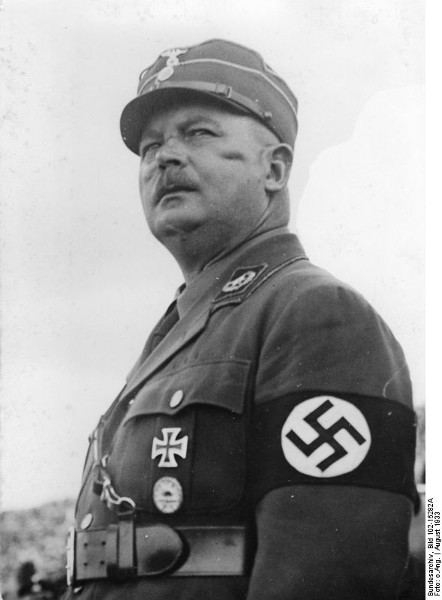 Ernst Röhm, head of the SA, had become too powerful and was eliminated in the Night of the Long Knives. Source: Bundesarchiv Bild 102-15282A / CC-BY-SA 3.0.
Ernst Röhm, head of the SA, had become too powerful and was eliminated in the Night of the Long Knives. Source: Bundesarchiv Bild 102-15282A / CC-BY-SA 3.0.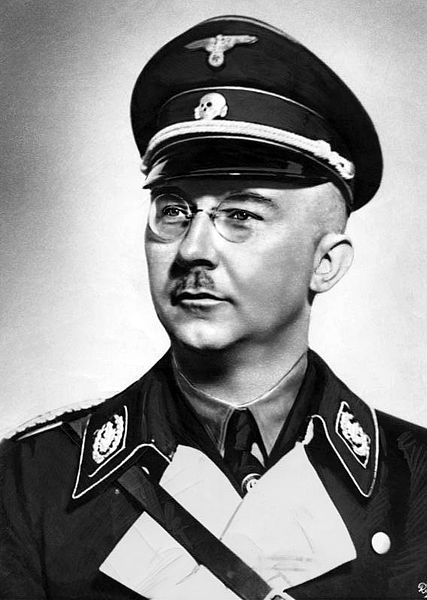 The SS of this Heinrich Himmler became the cornerstone of Hitler’s policy. Source: Bundesarchiv, Bild 183-R99621 / CC-BY-SA 3.0.
The SS of this Heinrich Himmler became the cornerstone of Hitler’s policy. Source: Bundesarchiv, Bild 183-R99621 / CC-BY-SA 3.0.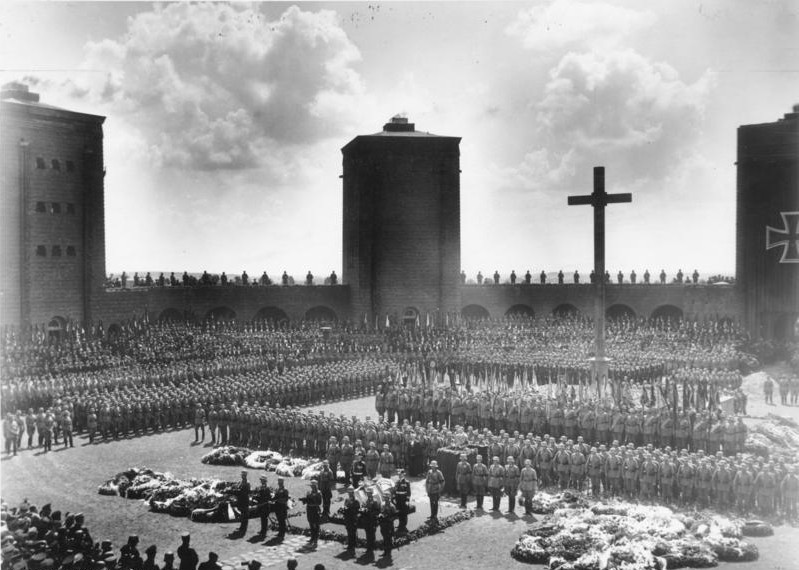 With Von Hindenburg’s death, the last restriction on Hitler’s power had disappeared. Source: Bundesarchiv, Bild 183-2006-0429-502 / CC-BY-SA 3.0.
With Von Hindenburg’s death, the last restriction on Hitler’s power had disappeared. Source: Bundesarchiv, Bild 183-2006-0429-502 / CC-BY-SA 3.0.The Second World War
Adolf Hitler has never kept his intentions secret. In order to mislead foreign powers, he sometimes was more cautious in his approach and words but it had always been his intention to eradicate the humiliation of World War One and the subsequent Treaty of Versailles. Germany had to be restored to its former glory. Rebuilding its military power and the founding of the Greater German Empire, with for instance the Austrian Anschluss and the annexation of the Sudetenland via the Munich agreement, fitted within that framework but were not sufficient. The German Empire had to be expanded with Lebensraum so the country could evolve into a real major economic power, a self sustaining power independent of world economy.
This Lebensraum had to be found in the east. Poland and the Soviet Union would be the major victims. With these areas in mind, Hitler was able to achieve two goals: taking care of a sufficient economic foundation (raw materials, agricultural areas) and the elimination of the ideological enemies (Communism and Jewry). The Polish crisis of 1939, where Poland refused to co-operate in creating a corridor between Danzig and the German homeland, accelerated everything, even though that was not the intention of the Nazis. On September 1st, 1939, a few days after the signing of the Molotov-Von Ribbentrop Pact (Pact 23-08-1939), Germany invaded Poland, ostensibly in reaction to a Polish raid on a German radiostation in Gleiwitz (Statement Naujocks). Great Britain and France, having put up guarantees for Poland, declared war on Germany. This was a serious setback for Hitler who had hoped to postpone a general European war for a few more years. Moreover, he was now engaged in a war against Great-Britain, the country he had always considered the ideal ally.
It was also remarkable that in this kind of radical measures, the only one to make decisons was Hitler. There were talks with various people but apart from Hitler, there was no government to take decisons. The cabinet did not convene, other leading figures like Joseph Goebbels were not involved, even the Wehrmacht was not informed of all plans and developments. All this shows once again what kind of a real Führer dictatorship Nazi Germany had become. Hitler’s authority was absolute and was simply not disputed by anyone else. This also means by defintion a bewildering and hardly consistent policy. Hitler improvised, took decisions quickly (or not), revoked them again and sometimes introduced them once more. Ernst van Weiszäcker, state secretary at Foreign Affairs, testified: "He was not a man of logic or reason." For instance there was no concrete plan whatsoever for the ruling of Poland after it had been conquered.
Moreover, Hitler became increasingly aware of his own mortality. At the age of 50 he realised that his time was not endless and that he had to fullfill his ambitions in the shortest possible time. This notion was strengthened by the failed bomb attempt by Georg Elser on November 8, 1939. (Assault 08-11-1939) "I am now 50 years of age, still in full possession of my strength. The problems must be solved by me and I cannot wait any longer. In a few years time I may no longer be capable physically or mentally." In addition, the long years of influence by the Führer cult had made Hitler lose all notion of his own limitations; he continously overestimated his own capabilities. This resulted in the Nazi leader willing to take huge risks, continuously ignoring cautionary advice and refusing any kind of compromise. That would become very clear in the years to come.
Initially, the war progressed very well: Poland was overrun in September 1939. The West-European countries had no answer for the German Blitzkrieg (Lightning war) either. Operations such as Weserübung, Fall Gelb and Fall Rot in the spring of 1940 sealed the fate of Norway, Belgium, the Netherlands and France. Under these successes however, serious problems lay hidden: the German armed forces were not ready for a prolonged war. Moreover, Hitler possessed little knowledge of military command: co-ordination and communication between the various departments of the armed forces were very poor, orders were given and then countermanded. The leader also reacted very insecurely and panick stricken to difficult moments during the offensives. In these first few months, the military crises were mostly of short duration but as successes did not materialise anymore, these shortcomings were going to cause serious problems.
In addition, Hitler made the capital mistake by attacking the Soviet Union in the summer of 1941 (Operation Barbarossa) at a time when the war in the West had not yet come to a conclusion. Under the direction of Winston Churchill, the British tenaciously continued the war, again a misjudgment by the Führer. To Hitler and his generals, belief in their own capabilities was huge nonetheless, they were convinced that the Soviet Union could be defeated in five months time. Thereafter, the British would have no other choice than to accept Germany’s peace terms. The decision to attack the Communists was an all or nothing choice: victory or total defeat. In Hitler’s way of thinking, there was no other option. The judgments, made by Hitler as well as by his General Staff were a serious underestimation of the military strength of the Soviet Union. At the end of 1941, when the German advanced was stopped in its tracks outside the gates of Moscow, it was already clear that final victory would be impossible; yet Hitler did not at any moment consider a different strategy. He refused to acknowledge his own fallability and hence signed the death warrant of his Third Reich.
At home meanwhile, the racial policy gained its own momentum. Hitler himself was not involved in the matter as the strategy of war commanded his full attention. There are no clues that Hitler himself had concrete plans. Others were involved more actively. All kinds of plans were drafted (and just as soon rejected), for instance the well known Madagascar plan which entailed shipping all Jews to this French colony. The radicalisation in dealing with the the Jews that began to take on signs of genocide in Poland, was mainly the work of the SS and the SD. The attack on the Soviet Union paved the road to a real war of destruction. "The coming campaign is more than just an armed conflict; it will also lead to a confrontation between two ideologies. […] The Jewish-Bolshevist intelligentsia, the suppressor of the people up till now, must be eliminated." The Einsatzgruppen (see Einsatzgruppen Art.) executed hundreds of thousands ‘undesirables’ while many others were herded together in ghettoos and concentration camps.
In September 1941 Hitler gave permission to deport German Jews as well to the camps in the east, something which Heinrich Himmler and Reynhard Heydrich had been urging for a long time. In the months after, construction or enlarging of extermination camps such as Belzec, Treblinka and Auschwitz followed, where Jews, Roma and Sinti were systematically murdered in gas chambers. The Wannsee Conference of January 1942 was the last step towards the Endlösung (Final solution), even though Heydrich did not present a concrete plan here. Hitler himself was not directly involved in this; he did not have to. In the previous months he had expressed himself sharply about Jews, in private as well as in public. Thereby he left no doubt as to their final fate: " We are convinced the war can only end by either the destruction of the Arian peoples or by the disappearance of Jewry from Europe. As early as September 1, 1939, I declared in the German Reichstag […] that the war will not end as the Jews think it will, with the exterminatioen of the European-Arian peoples but that the outcome of the war will be the total extermination of Jewry in Europe." Hence there can be no doubt whatsoever about Hitler’s responsibility, who was meticulously kept informed by Heinrich Himmler on the progress of the genocide on Jews.
The Führer spent the largest part of the war in his Wolfsschanze (Wolf’s lair) in east Prussia. There he gradually lost his grip on reality. Notwithstanding the defeat in the battle for Stalingrad, the undeniable truth that the advance on the Eastern Front had reversed into a retreat and the merciless bombardments on Germany, he still kept a rock solid belief in final victory, even though he increasingly collided with his generals. Capable and faithful men Heinz Guderian and Fedor von Bock were dismissed when they criticised Hitler’s military plans or failed to reach his unrealistic goals. The bond with his own population grew weaker and weaker too; the Nazi leader had become an invisible warrior to his people. Hitler’s popularity decreased by the day, in particular after the defeat at Stalingrad. Here and there, opposition emerged also: die Weisse Rose (white rose) of Hans and Sophie Scholl distributed criticising pamphlets. A small group of high ranking officers also made plans to bring Hitler down.
As the war progressed and defeat followed defeat, Hitler’s conduct became more and more irascible. Outburst of anger became the order of the day and he was continuously looking for scapegoats that allegedly sabotaged his plans. In the speeches he still delivered, he ignored the unpleasant facts. The chasm between reality and Hitler’s retorics grew wider and wider. This did his credibility no good: too many people realised that the war was not going in the right direction at all. Even Joseph Goebbels, one of Hitler’s most faithful paladins, complained that Hitler had alienated himself from the masses, while the authority of the Führer depended on the support of those very same masses.
Definitielijst
- Blitzkrieg
- The meaning of this word is “Lightning War”. Short and fast campaign. As opposed to a trench war the Blitzkrieg is very quick and agile. Air force and ground forces work closely together. First used against the Germans (September 1939 in Poland.
- Communism
- Political ideology originating from the work of Karl Marx “Das Kapital” written in 1848 as a reaction to the so-called class struggle between the proletariat (labourers) and the bourgeoisie. According to Marx the proletariat would take over power from the well-to-do classes though a revolution. The communist movement aspires an ideal situation where the means of production and the means of consumption are common property of all citizens. This should end poverty and inequality (communis = common).
- dictatorship
- A form of government where the power in a country is in the hands of one person, the dictator. Originally a Roman regime in case of an emergency where total power would rest with one person during six months in order to face a crisis.
- Endlösung
- Euphemistic term for the final solution the Nazis had in store for the “Jewish problem”. Eventually the Endlösung would get the form of annihilating the entire Jewish people in extermination camps.
- Führer
- German word for leader. During his reign of power Adolf Hitler was Führer of Nazi Germany.
- Jews
- Middle Eastern people with own religion that lived in Palestine. They distinguished themselves by their strong monotheism and the strict observance of the Law and tradition. During World War 2 the Jewish people were ruthlessly persecuted and annihilated by the German Nazis. . An estimated 6,000,000 Jews were exterminated.
- Lebensraum
- “Living space”. Nazi term indicating the need for the overpopulated German lands to expand.
- Madagascar plan
- Unexecuted plan aimed at forcing Jewish civilians within the German realm to immigrate to the island of Madagascar.
- Nazi
- Abbreviation of a national socialist.
- raid
- Fast military raid in enemy territory
- Soviet Union
- Soviet Russia, alternative name for the USSR.
- strategy
- Art of warfare, the way in which war should be conducted in general.
- Wannsee Conference
- Conference at the Wannsee on 20 January 1942. The Nazi’s made final agreements about the extermination of Jews in Europe, the Final Solution (Ëndlösung).
- Wehrmacht
- German armed military forces, divided in ground forces, air force and navy.
- Wolfsschanze
- Headquarters of Adolf Hitler in East Prussia.
Images
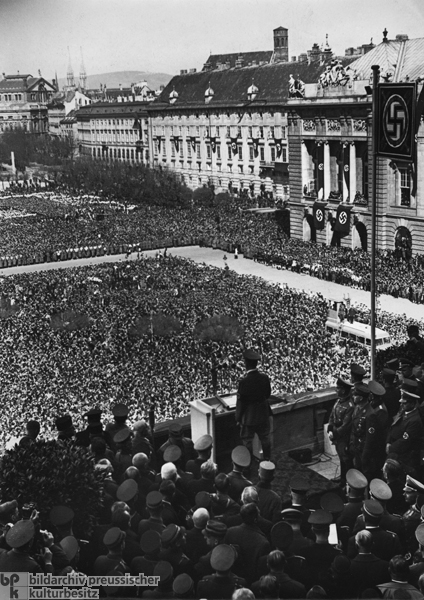 Hitler delivers a speech at the Heldenplatz in Vienna, right after the Austrian Anschluss. Source: Bildesarchiv Preussischer Kulturbesitz.
Hitler delivers a speech at the Heldenplatz in Vienna, right after the Austrian Anschluss. Source: Bildesarchiv Preussischer Kulturbesitz.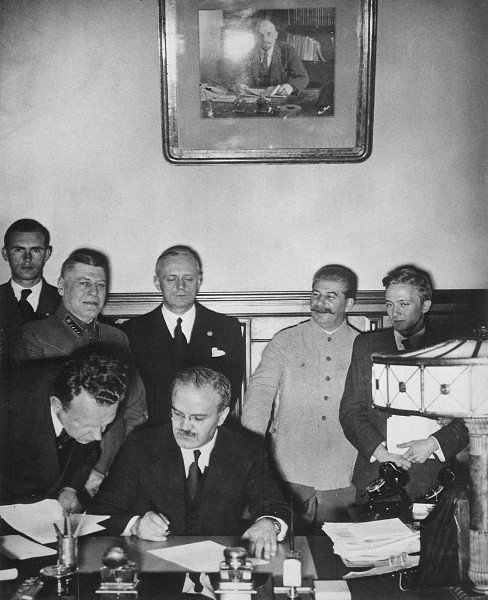 Molotov and Von Ribbentrop sign the German-Soviet non-aggresion pact under Stalin’s approving eye. Source: NARA.
Molotov and Von Ribbentrop sign the German-Soviet non-aggresion pact under Stalin’s approving eye. Source: NARA.Downfall
Defeats piled up in North-Africa, on the Eastern Front and Europe itself was attacked by the Allies in Italy in September 1943. This did not mean however that Hitler changed his approach. He kept drawing in all authority, even in the military sphere although he had made some grave mistakes there. In his opinion though, none of this was his responsibility: all defeats and setbacks were the result of betrayal, incapability and weakness of his generals and other associates. Even though the situation was hopeless, capitulation and a repetition of 1918 were simply unthinkable. Time and time again, Hitler build his hopes on new weapons like the V 2, new offensives. A gigantic kind of self-deceit. Hitler lived in a world of illusions more and more.
Despite his inner conviction it was unmistakably clear however that the war and the many setbacks had a negative influence on Hitler. He looked old and tired, walked crookedly and could control his shaking left hand less and less. He suffered from stomach and intestinal problems, his heart disease had become worse and he propably suffered from Parkinson’s disease. Despite the many drugs he took daily, mainly prescribed by his private physician Theodor Morell, Hitler’s physical condition deteriorated from day to day. In addition he was overwhelmed by a never ending stream of military problems and setbacks that came to him. As he was the pivotal point of the entire Nazi system and did not want to yield an inch of power in any sphere, it was he who had to take all decisions in every sector. He did this ever more indiscriminately or simply not at all.
Meanwhile the German population, which once had put all its trust in Hitler, was more than sick and tired of the war. In particular after D-Day, the Allied invasion of Normandy on June 6, 1944, the German propaganda machine lost its impact. Apart fromn the fanatic loyals, Hitler did not reach anyone anymore with his rare speeches. The population though lacked any opportunity to do something about its fate. This was only open to those who were close to the Führer. A group of officers and high ranking officials, who saw the hopelessness of the entire war, wanted to eliminate Hitler and save Germany from complete destruction. The assassination attempt and the coup of July 20, 1944 (Assault 20-07-1944), failed however. This strengthened Hitler’s distrust in the General Staff and his Messianic notion that he was Germany’s saviour.
Reality however looked a lot less optimistic. There was the continuous bombing of German cities and the Allied advance on the Western as well as on the Eastern front was unstoppable. Hitler however refused to consider any suggestion of entering into peace negotiations. On the contrary, he considered it his historical task to fight to the bitter end, even when that meant total destruction of his country and its population. If we are to believe Albert Speer, the Führer even dropped the suggestion that the German population was too weak, not worthy of him and maybe therefore had brought its destruction upon themselves.
Each new action that was launched, such as the establishment of the Volkssturm (People’s Army) and the offensive in the Ardennes in the winter of 1944 - 1945 were the last convulsions of a dying empire that only prolonged the suffering of its own population. Even in those days, Hitler’s authority remained unchallenged but at the same time, some of his closest associates tried to find their way out of the hornet’s nest. For instance, even Heinrich Himmler, whose nickname was, not for nothing faithful Heinrich, attempted to contact the Allies in an attempt to save his own skin.
It all proved in vain. One after the other, Germany’s allies fell away: Benito Mussolini was disposed of and murdered in April 1945, Bulgaria (1944) and Romania (August 1944) were conquered and Finnland entered into an armistice with the Soviet Union. The only thing that continued almost undiminished was the final solution. Even though many concentration and extermination camps were closed down before the advancing forces of the Red Army, the suffering did not end there. Hundreds of thousands of camp inmates were marched westwards in so called death marches: about one third of them would not survive this last journey. Between five and six million people, predominantly Jews but also Jehova’s Witnesses, Gypsies and other ‘undesirables’ lost their lives as a result of this Final Solution.
In 1945, Hitler’s health deteriorated considerably: high blood presuure, clogging of veins, acute stomach cramps and jaundice frequently kept him in bed for days. Meanwhile he was also clearly aware of the inevitable defeat and even talked about committing suicide but surrender was no option. "I know we have lost the war. The superiority is too overwhelming. I am betrayed […] I’d rather put a bullet through my head […] We will not surrender. Never. We may go down but we will take a world with us." This typifies Hitler’s logic: a repetition of 1918 and a new humiliation in the form of a dictate was out of the question. The Nazi leader was convinced that the will of a population could overcome any obstacle. If the German population was not up to this, its destruction was, in his opinion, nothing more than a logical and inevitable consequence.
In this period, Hitler had withdrawn into his subterranian bunker beneath the Reichskanzlei in Berlin where he was to spend the last months of his life. The Soviets stood at the gates of the capital but he still believed that everything was not yet lost. Hitler hoped for instance that the alliance between the Soviets and the West would not last and that Germany could make use of this discord. It all proved in vain.
In April 1945, the German western front was on the brink of collapse and the Red Army tightened its grip on the German capital. Defeat was inevitable: even the death of the American president, Franklin Roosevelt on April 12th, 1945 could not avert that. In this totally hopeless situation though, time was still found to ‘celebrate’ the Führer’s 56th birthday. The mood in the bunker was depressive however. Hitler, exhausted and apathetic was hardly able to receive the congratulations. The majority of the Nazi leaders, including Hermann Göring and Heinrich Himmler, left and headed for safer havens. Adolf Hitler was left behind, practically on his own. Some of his most faithful and fanatic followers, such as Martin Bormann and Joseph Goebbels, stayed with him.
On April 22nd Hitler acknowledged for the first time that the war was lost. He would remain in Berlin himself to ‘lead the defence of the city’ and indicated he would committ suicide at the last moment. The rest was free to go where ever they liked.
A few days afterwards he married Eva Braun, the woman who had stood beside him until the last moment, even though she never had had a place in the foreground. In marrying her, Hitler rewarded her for her loyalty. To his secretary Traudl Junge, he dictated his political testament, mainly reverting to his classic retorics in an attempt to justify himself. He appointed a new government under Grand Admiral Karl Dönitz and ordered him to expand the nationalsocialist state.
In the morning of April 30th, a staff meeting with Wilhelm Keitel made it clear that no relief could be expected and that it would only be a matter of hours before Soviet forces would reach the bunker. Adolf Hitler bid farewell to his staff. Around 15:30 he retired to his study with Eva Braun. Goebbels, Bormann and the remainder of the staff stayed behind in the corridor. A few minutes later, SS officer Heinz Linge went in: Braun and Hitler were sitting side by side on the couch. She had poisoned herself with cyanide while he had shot himself throught the head. The Nazi leader, once so applauded and feared, was no more. Their bodies were burned in the grounds of the Reichskanzlei, their ashes were later scattered over a river by the Soviets.
A week later, Germany’s new leader Karl Dönitz, accepted the unconditional surrender of the German armed forces.
Definitielijst
- capitulation
- Agreement between fighting parties concerning the surrender of a country or an army.
- D-Day
- The day of the long awaited invasion of western Europe in Normandy, France, 6 June 1944. After a long campaign of deception the allies attacked the coast of Normandy on five beaches to begin their march on Nazi Germany. Often explained as Decision Day, though this is entirely correct. The D stands for Day as generally used in military language. In this case it means an operation beginning on day D at hour H. Hence “Jour J“ in French.
- Führer
- German word for leader. During his reign of power Adolf Hitler was Führer of Nazi Germany.
- invasion
- Armed incursion.
- Jews
- Middle Eastern people with own religion that lived in Palestine. They distinguished themselves by their strong monotheism and the strict observance of the Law and tradition. During World War 2 the Jewish people were ruthlessly persecuted and annihilated by the German Nazis. . An estimated 6,000,000 Jews were exterminated.
- Nazi
- Abbreviation of a national socialist.
- offensive
- Attack on a smaller or larger scale.
- propaganda
- Often misleading information used to gain support among supporters or to gain support. Often used to accomplish ideas and political goals.
- Red Army
- Army of the Soviet Union.
- Soviet Union
- Soviet Russia, alternative name for the USSR.
Images
Epilogue
The impact of Adolf Hitler can hardly be overestimated. He and he alone was the dominant and decisive factor in the development of Nationalsocialism into one of the most radical and deadly ideologies in history. He managed to dominate and influence an entire society in such a way that it was willing to ‘work towards him,’ even in the most radical notions.
Hitler had a complex personality which up until today gives rise to much discussion. On the whole, we should not make the mistake to see him as someone with a fixed plan he attempted to put into practice at all costs. For this he was too much of an uncertain chaotic person who often lost himself in endless monologues in which a central theme was difficult to find. He often put up an example of unbridled energy and untiring committment and he was just as often passive, had a waiting attitude and he let matters take their course. His extreme shifts of moods (euphoria, apathy, depression) frequently rose to the surface. In particular after setbacks, for instance the failed attempt at a coup in 1923, he announced more than once he would committ suicide. This latent willingness to kill himself would recurr throughout his political career. This all or nothing factor was so characteristic for the risks, politically as well as military, he would take so often.
His uncertainty and his seemingly dual personality made him unfathomable and difficult to judge, even to those who were closest to him. Albert Speer said for instance: "I might say he was cruel, unreasonable, unreachable, cold, temperamental, oversensitive and uncouth and he was indeed all that. At the same time however, he was the exact opposite of all this. He could be a caring father, an attentive superior, amiable, he could be composed and enjoy everything that was grand and beautiful."
At first sight, Hitler was a hardly conspicuous figure who made little impression on people. Nevertheless many were enthralled by him. That was in no small measure to be attributed to his inner powers of conviction and his gift as a demagogue. The importance of that retoric talent cannot be underestimated: Hitler knew exactly how to touch that nerve, these senses in such a way that millions were willing to follow him blindly. American journalist Hubert R. Knickerbocker was aghast when he heard the Nazi leader during a speech in circus Krone: "He was an evangelist addressing the masses, the Billy Sunday (an American evangelist) of German politics. His converts went along with him, laughed with him, felt with him. Together they ridiculed the French. Together they catcalled the republic. The 8.000 strong audience was an instrument on which Hitler played a symphony of national passion." Hitler biographer Volkert Ulrich draws this conclusion: "In the communication between speaker and audience, in the exchange of individual as well as collective sentiments and neuroses, the American justly recognised the secret of Hitler’s success."
Yet Adolf Hitler was more than just an excellent demagogue; he was a gifted actor as well who possessed the art of always putting on different masks or playing different roles. In doing so, Hitler managed time and again to mislead both followers and opponents as to his intentions. That shifting of roles did not mean shifting of ideas: in the course of the 20s his world vision had grown into one entity. The two main elements in this world vision were his racially based anti-Semitism and the conquest of Lebensraum im Osten (Living space in the East), irreplaceable issues to which Hitler would immovably cling to.
The execution of all those ideas and Hitler’s dominance over Germany was only possible because he was surrounded by a circle of associates, such as Joseph Goebbels, Martin Bormann, Alfred Rosenberg and others, who believed in him unreservedly and even saw him as the saviour; an idea he cultivated himself ever more. They were the faithful associates and below them a large group of common people from all walks of life who put Hitler’s ideas into practice. By setting them up against each other, Hitler created a mutual competition in which the various agencies of the Führerstaat participated in a bid for Hitler’s approval and honors.
It is this complex cocktail of Hitler’s inferiority complex and anti-Semitic paranoia, the hurt feelings and pride of the German population, the miserable economic situation, the search for an easy scapegoat, the urge for a strong and charismatic figure, the willingness to follow such a person, etc., that make up the difficult explanation of the success and the actions of Hitler and his N.S.D.A.P.
Definitielijst
- Lebensraum
- “Living space”. Nazi term indicating the need for the overpopulated German lands to expand.
- Nazi
- Abbreviation of a national socialist.
Images
Information
- Article by:
- Gerd Van der Auwera
- Translated by:
- Arnold Palthe
- Published on:
- 19-01-2025
- Feedback?
- Send it!
Related sights
Related books
Sources
- Joseph Goebbels dagboek 1945, Elsevier.
- BULLOCK, ALAN, Hitler en Stalin, De Arbeiderspers, Amsterdam, 1991.
- CAPELLE, H. VAN & BOVENKAMP, A.P. VAN DE, De Berghof, Verba, Hoevelaken, 2003.
- CAPELLE, H. VAN & BOVENKAMP, P. VAN DE, Hitlers handlangers, Verba, Soest, 2004.
- EVANS, R.J., Het Derde Rijk Deel 1, Spectrum, Utrecht, 2004.
- EVANS, R.J., Het Derde Rijk deel 2, Spectrum, Utrecht, 2006.
- EVANS, R.J., Het Derde Rijk deel 3, Spectrum, Houten, 2009.
- HAMANN, B., Het Wenen van Hitler, Omniboek, Utrecht, 2014.
- HERTOG. P. DEN, Hitlers schutkleur, De Arbeiderspers, 2005.
- KERSHAW, I., Hitler - Hoogmoed 1889-1936, Het Spectrum, Utrecht, 2003.
- KERSHAW, I., Hitler - Vergelding 1936-1945, Het Spectrum, Utrecht, 2003.
- REES, L., Het charisma van Adolf Hitler, Ambo, Amsterdam, 2013.
- ULLRICH, VOLKER, Adolf HItler, Frankrfurt, 2013.
- VERMEER, MARC, De jeugd van Adolf Hitler 1889-1907, Aspekt B.V., 2007.
- WEBER, T., Adolf Hitler en de Eerste Wereldoorlog, Nieuw Amsterdam, Amsterdam, 2011.
